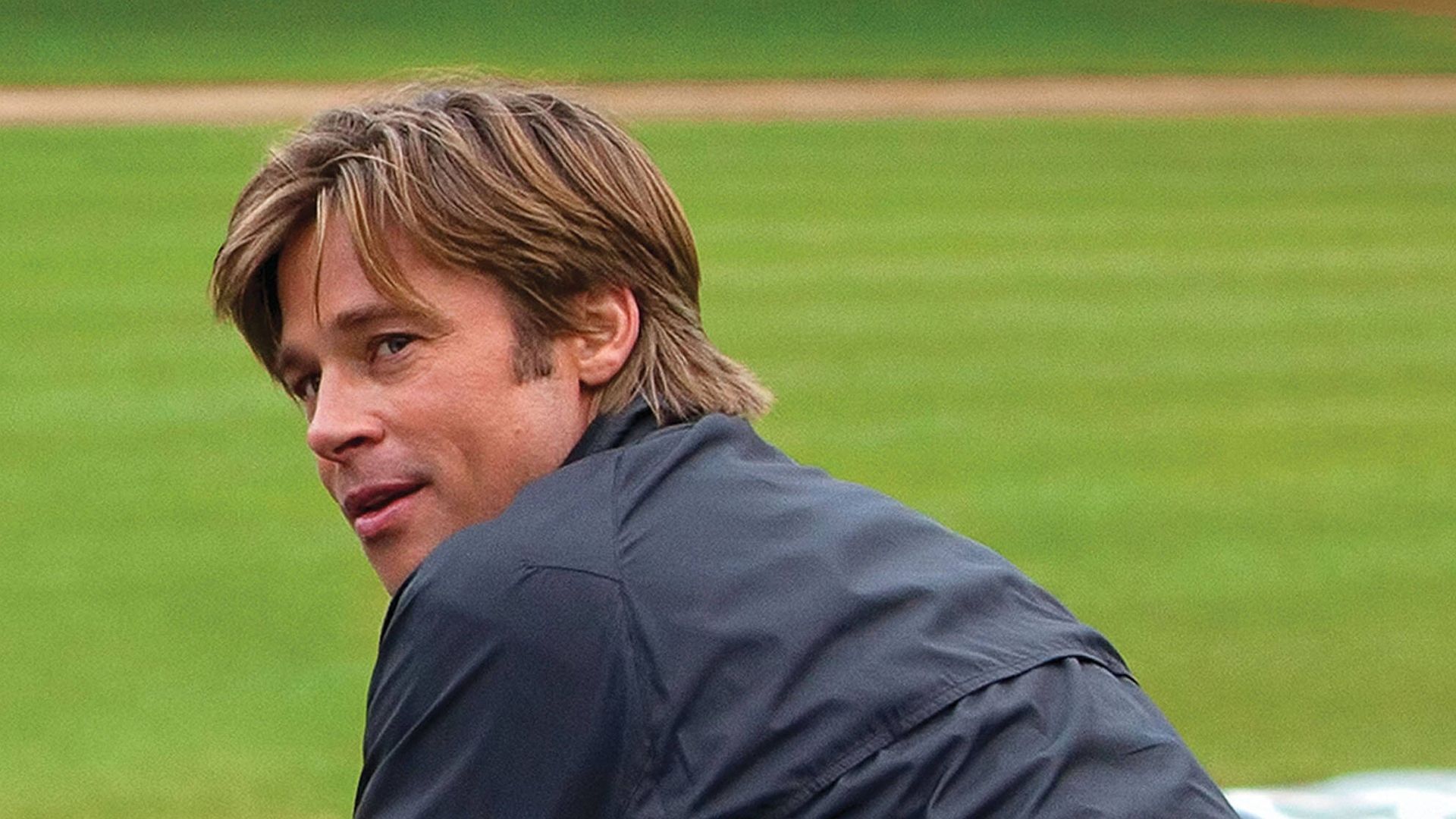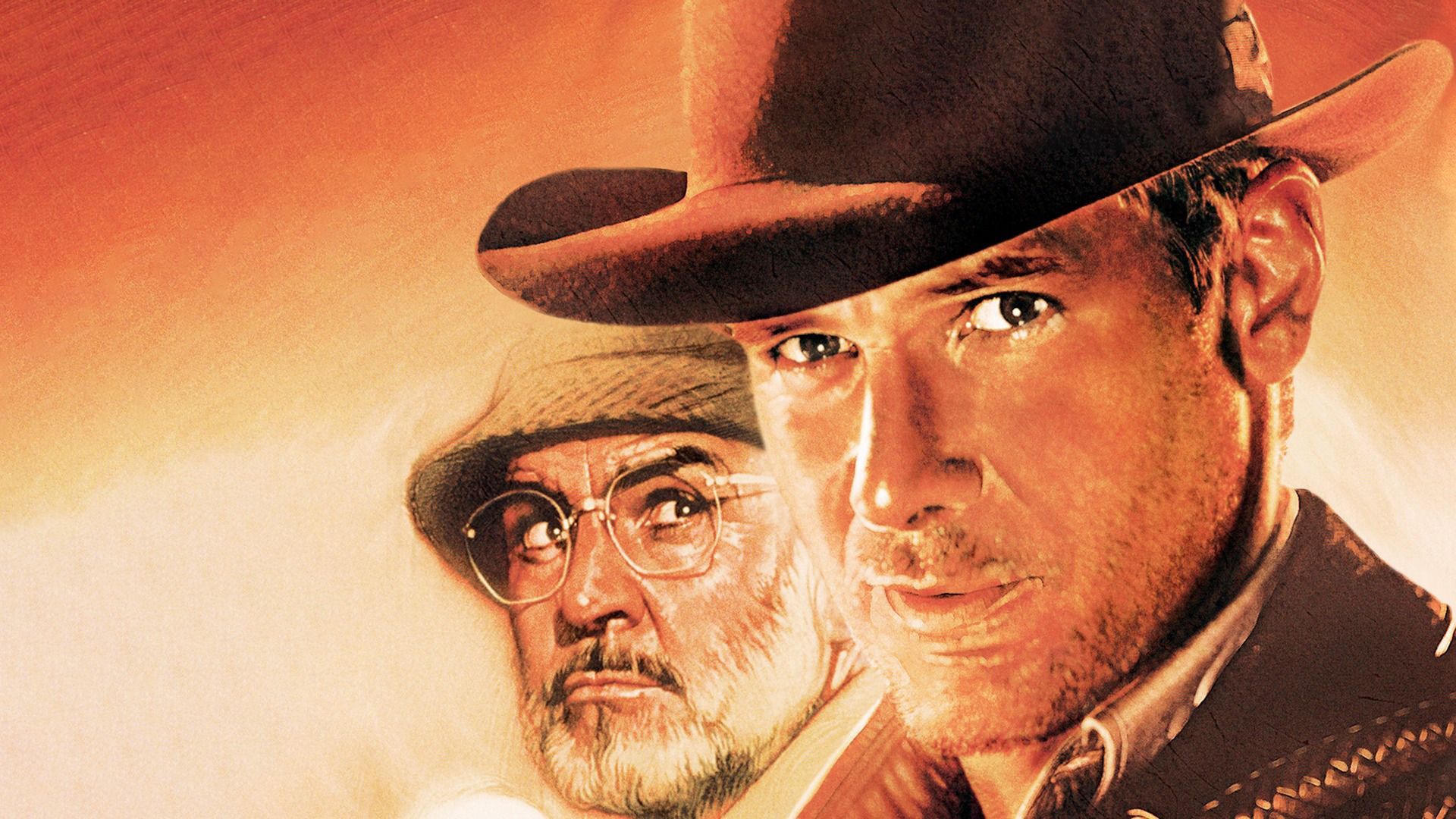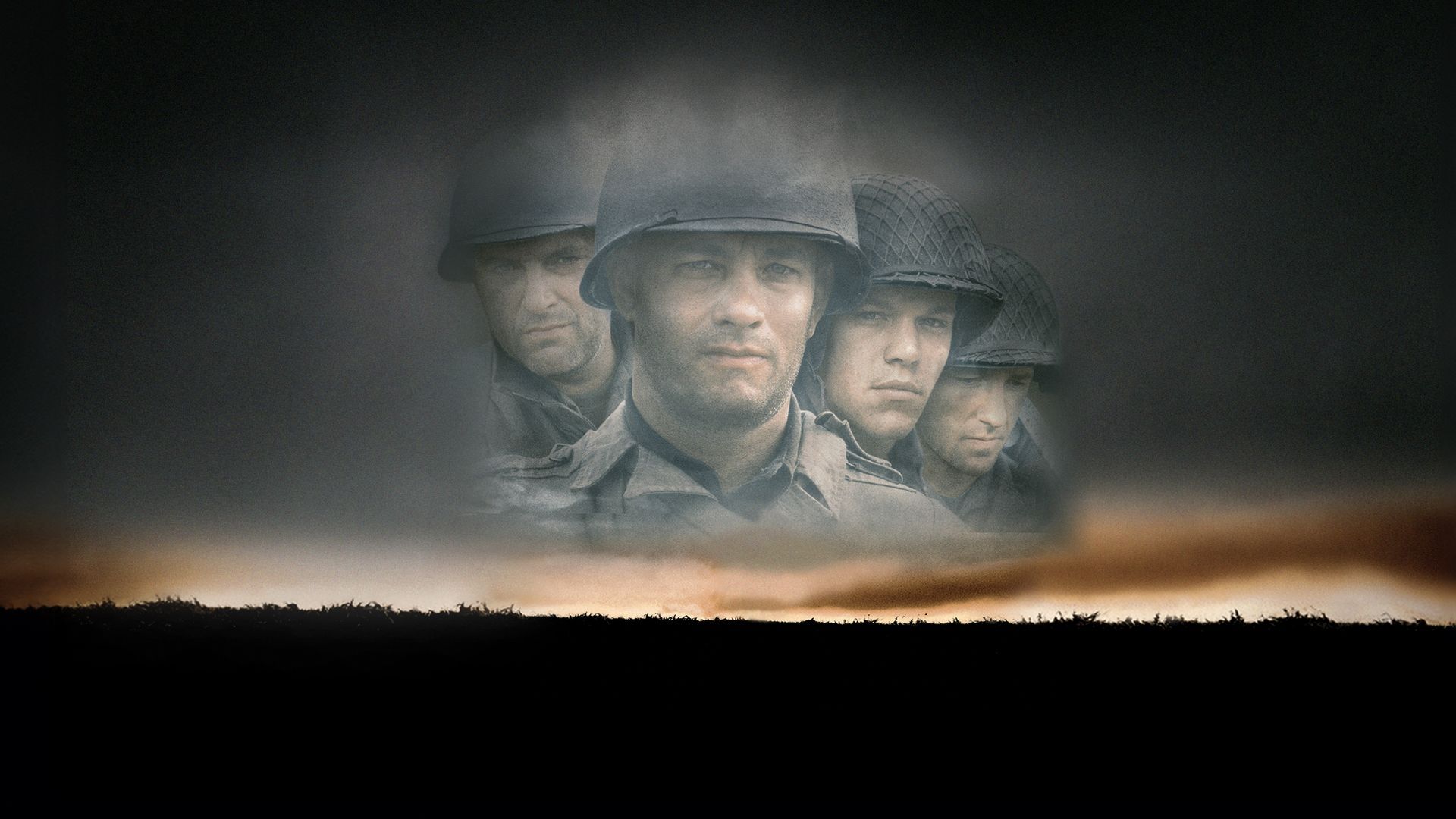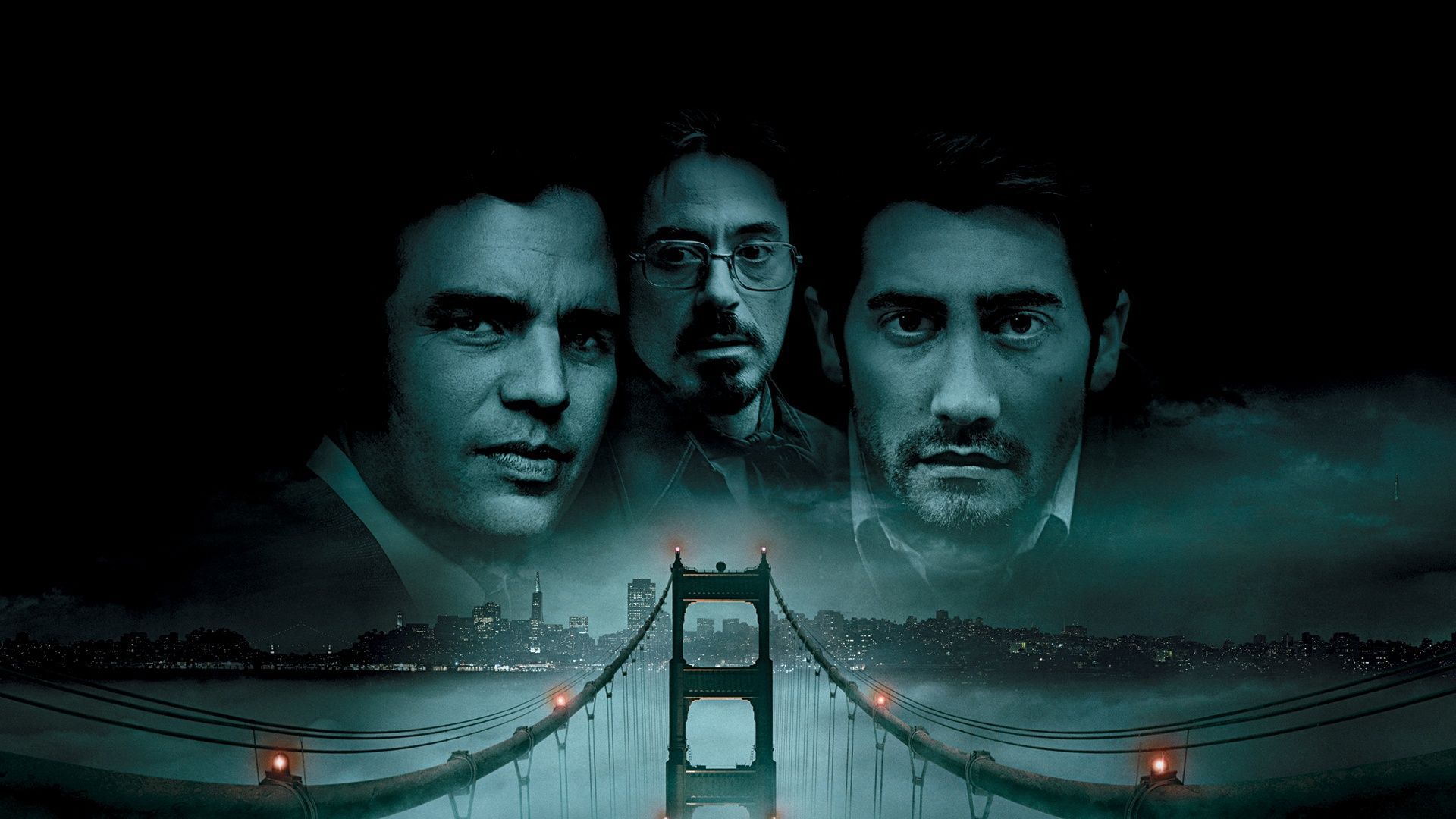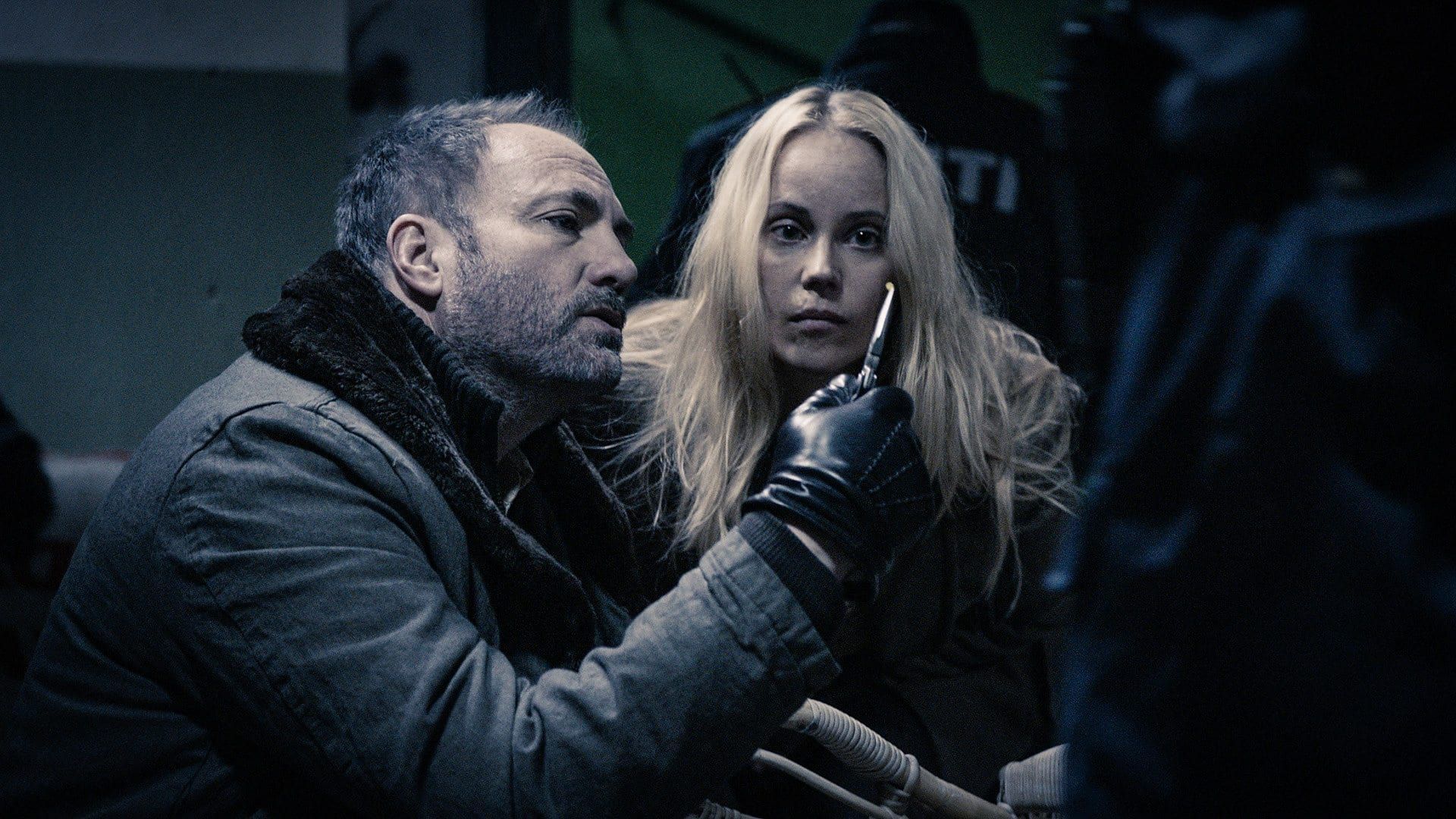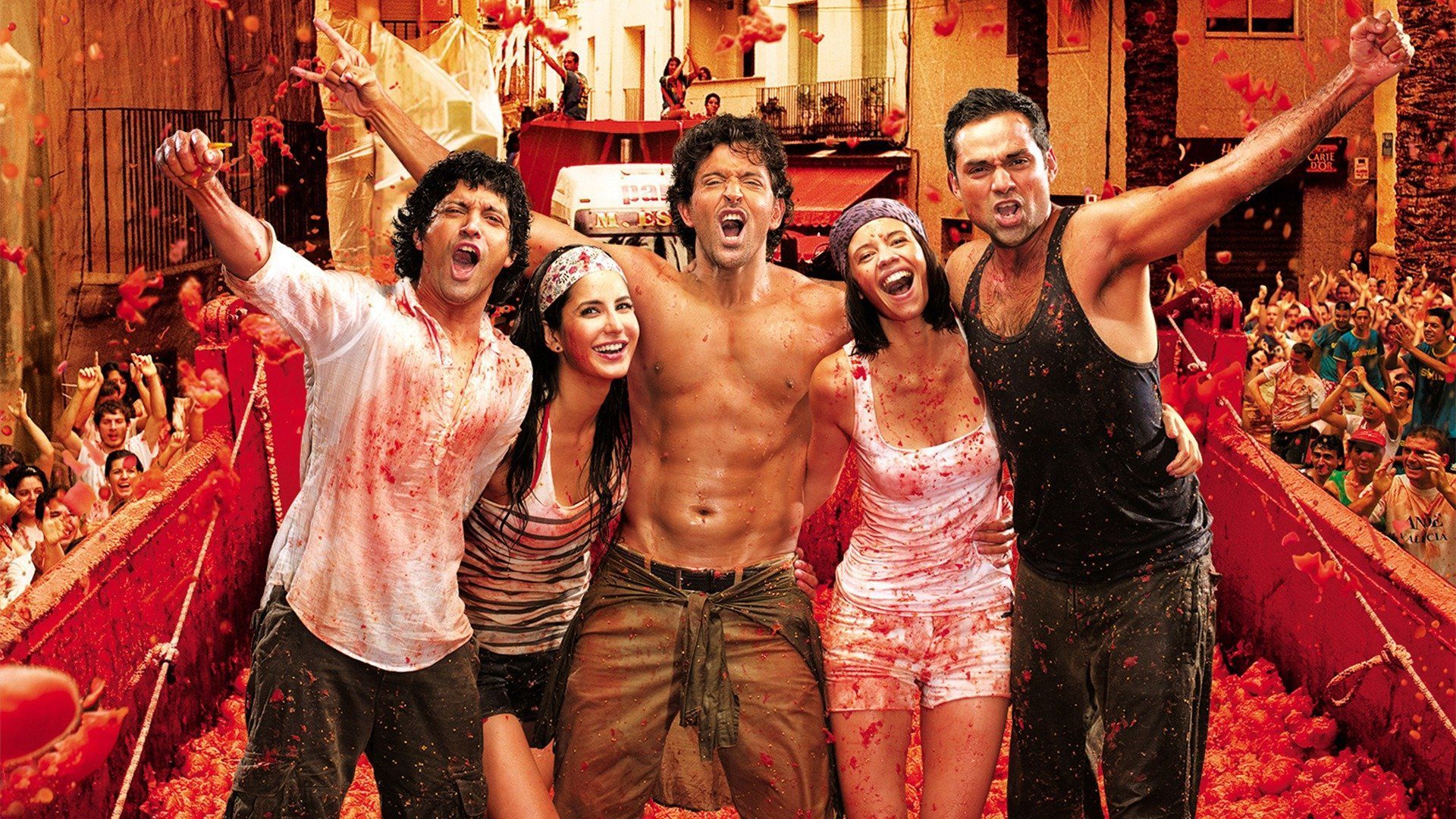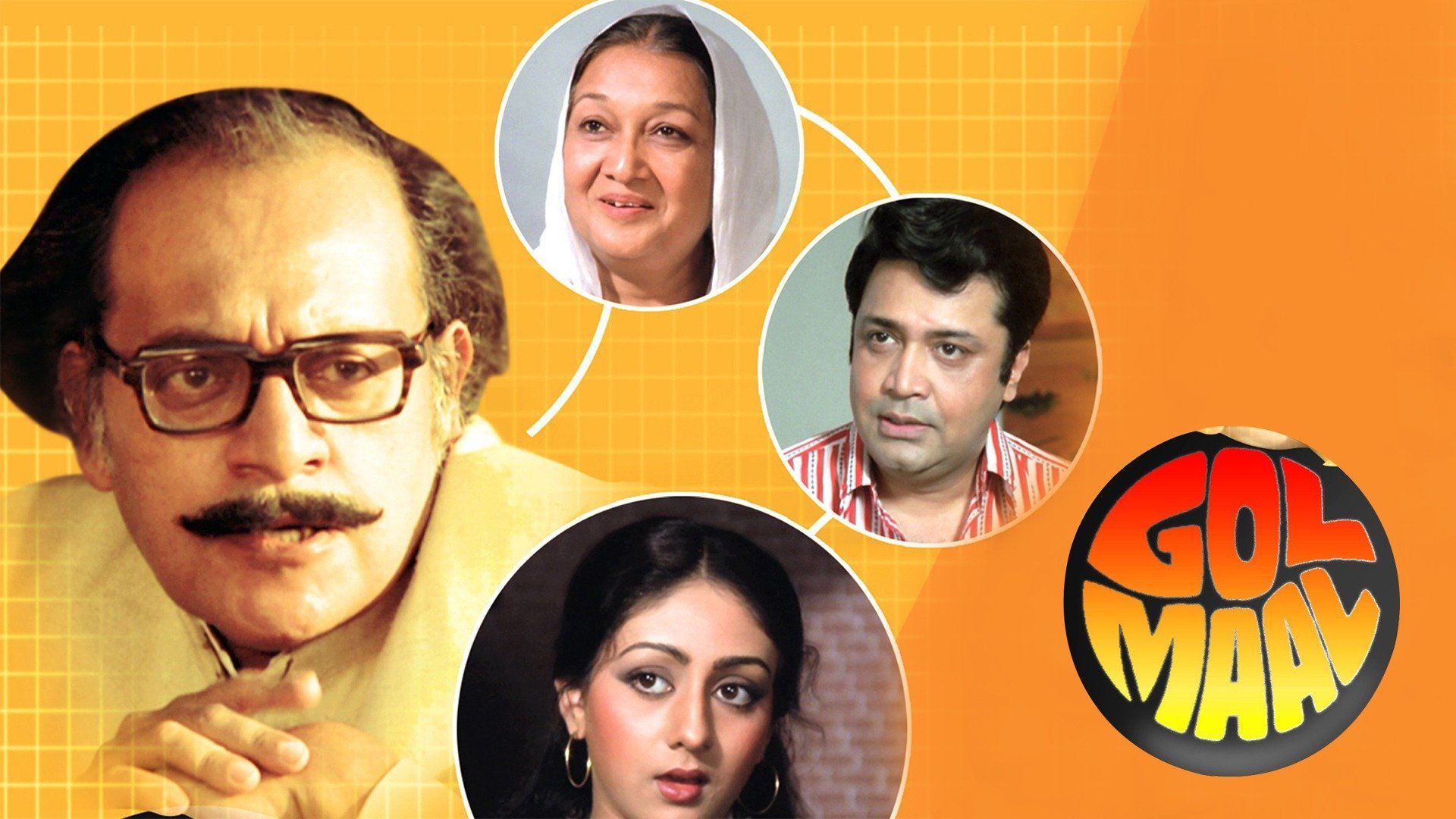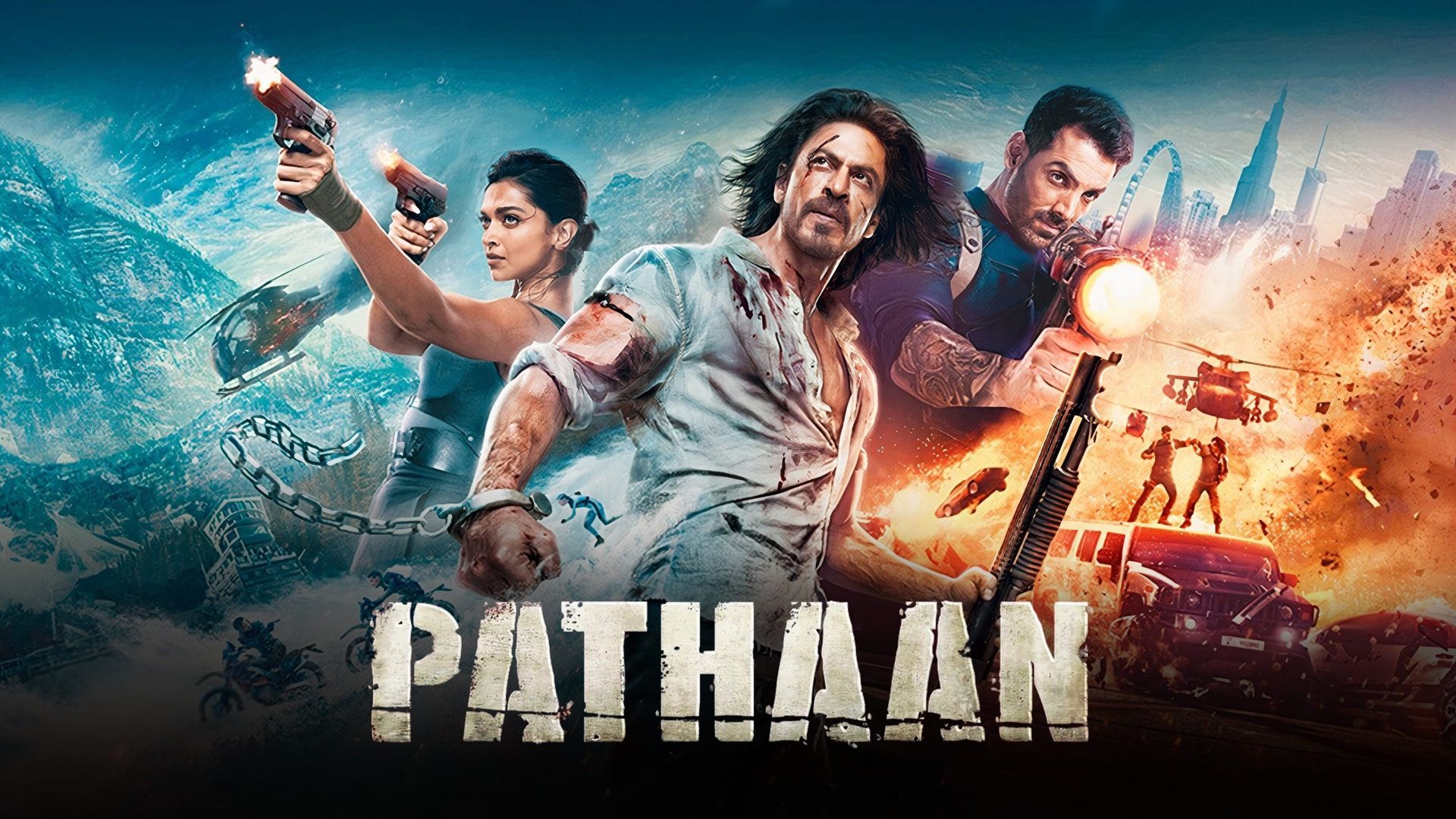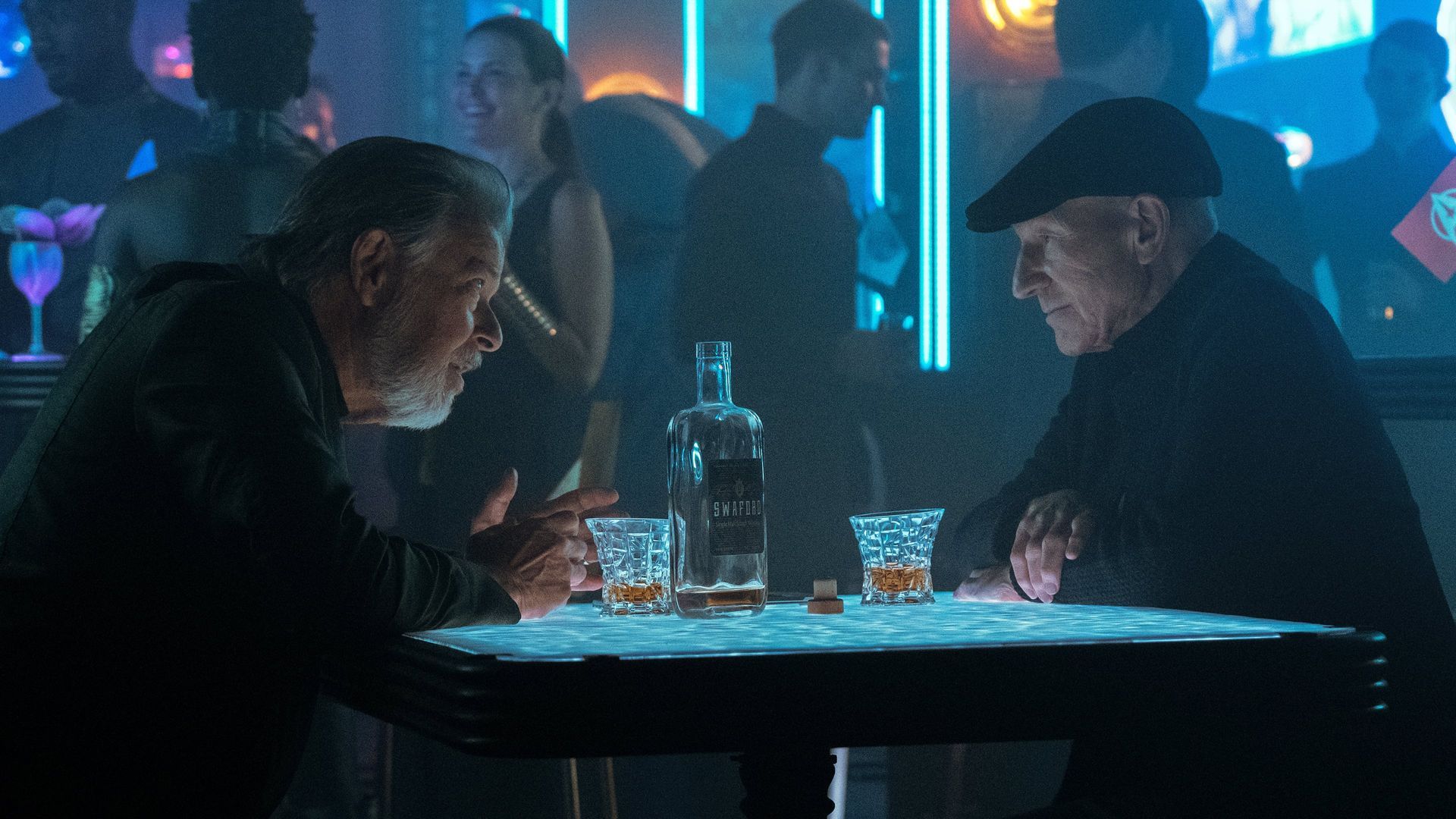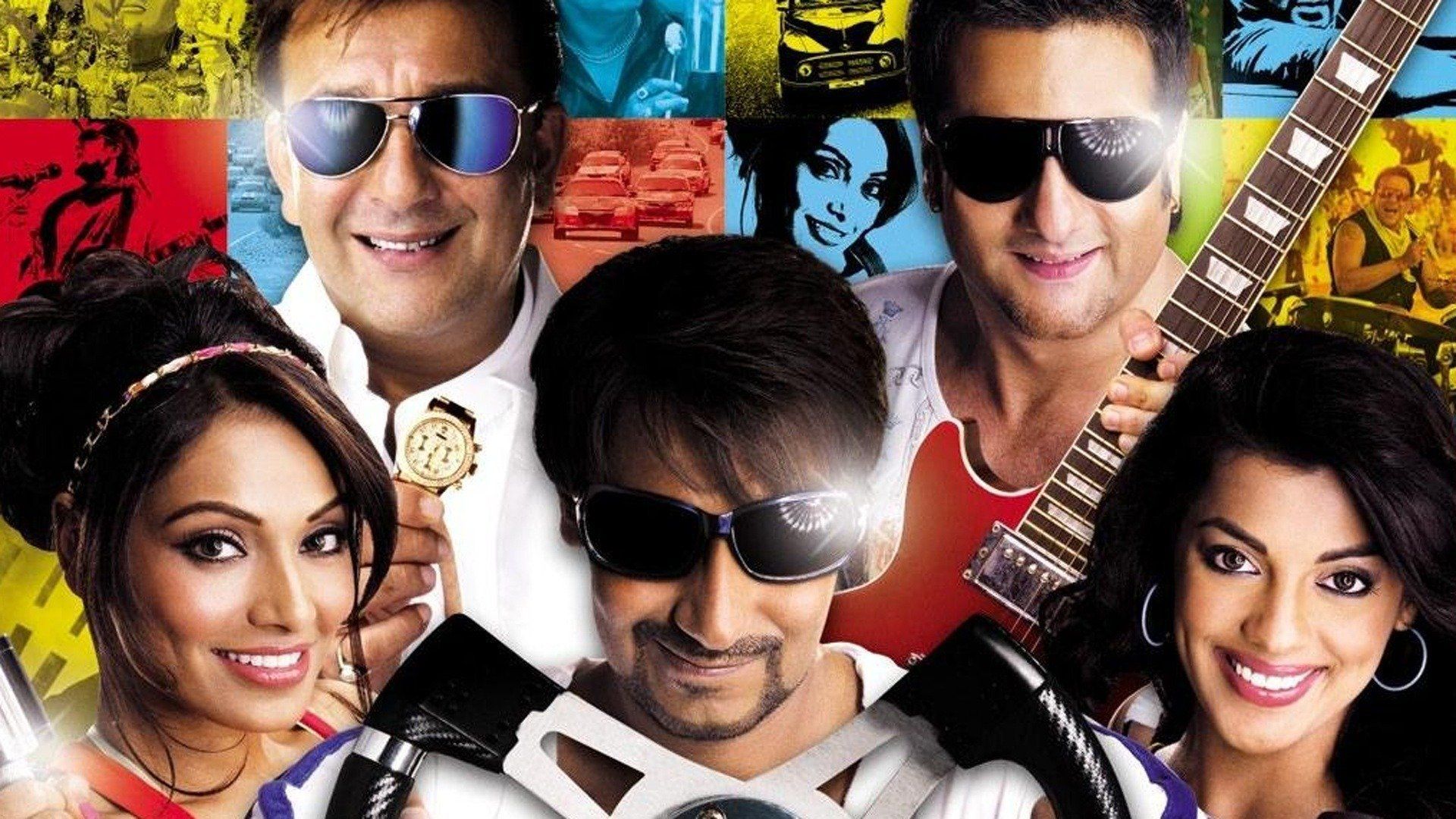Tanalien
Joined 2014
58
Movies2
Shows4
Episodes- Hulk
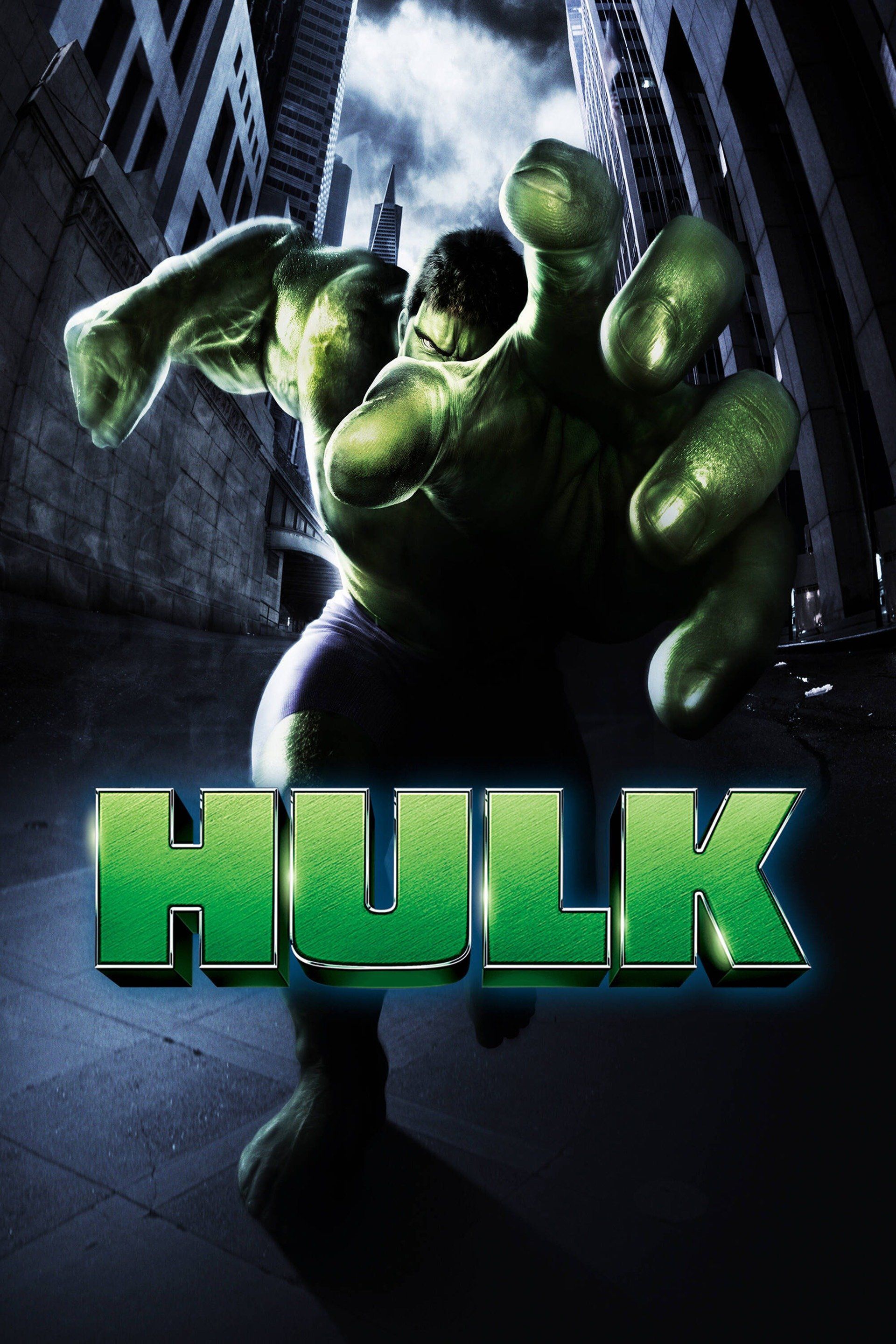 What happens when an established auteur takes on a big-budget comic book movie? In 2003, Universal Pictures owned the film rights for the Hulk character. For their first film with the green monster, they bet on a Taiwanese director Ang Lee, who was famous for excellent dramas and had just captivated audiences with a martial-arts film in 2000’s Crouching Tiger, Hidden Dragon. Before the box-office-dominating Marvel Cinematic Universe (MCU) established a winning template with 2008’s Iron Man, comic book films were more experimental. In the early 2000s, no one had mixed the right components together yet. Perhaps, the studio thought, Lee could repeat his success and make us a huge return on our money. As an experiment, Hulk is a fascinating film to view. How often is an auteur allowed to exert complete control on a superhero story? This is much rarer in the age of the Marvel Studio machine, which has centralized creative control away from the director, yet still produced many, multi-billion-dollar-successes. The title sequence of 2003’s Hulk sets a wildly different tone than any film in the MCU. When the Universal logo glides across the screen, composer Danny Elfman commands the sound stage with a complex musical rendition combining Eastern instruments, a female voice, throat singing, and a traditional Hollywood symphony orchestra. For a superhero film, it is incredibly bold and unexpected. With Hulk, Lee’s passion for exploring drama is evident in the first thirty minutes of the film. The story begins with a Freudian analysis of Bruce Banner, documenting his formational days as a child living with his birth parents. His father (Nick Nolte) is a military researcher, trying to generate advanced bio-soldiers. In his quest for a working prototype, he mutates his genes and passes the mutations hereditarily onto Bruce. For a time, the father experiments on his own son. But when Bruce’s father realizes his mistake, he descends even further into the moral abyss: he tries to kill his own son. This is the harrowing incident that defines Bruce. Using this event as a story pillar, Hulk veers into more evil territory than most MCU films. The visual style feels compelling - adapting the look of comic book panels on a page to the frame of a movie. Divided by lines, multiple camera shots take up sections of the frame. Lee extends these sequences to let us be our own editor, picking which perspective to focus on. Moreover, the montage editing of some sequences is brilliant - delivering information about multiple characters in a way that feels effortless to watch. But that was not what generated the negative reactions from fans. To this day, what audiences disliked about Hulk is the verboseness and the tone. For a comic-book film, Hulk is unusually talky. Lee spends the first thirty minutes of the film establishing character - all the chess pieces that he will orchestrate. There are two fathers, two adult children, and one, very annoying Department of Defense (DoD) advisor. The fathers hate each other, while their two adult children love each other and have daddy issues. I am convinced that the DoD advisor was only in the script so Bruce Banner could say the line, “You’re making me angry,” and become the Hulk. The lovers, Bruce and Betty, are portrayed by Eric Bana and Jennifer Connelly. The actors have a chemistry that is off-the-charts, as their characters would say. When they first meet onscreen in a research lab, my heart was pumping! For his part, Lee seems intent on making Hulk into modern-day Shakespeare - a twisted version of Romeo and Juliet where Romeo is a misunderstood superhuman monster. Sadly, the potential between these two gets smothered in a story that is less about romance - and more about resolving horrible fatherly relationships. Hulk’s script has a heavy emphasis on character dynamics: the lovers try to resist the pull of their fathers, while the fathers try to enforce boundaries between them. Most of the film’s dramatic impulses come from scenes when these characters meet for the first time - and talk. Every conversation is filled with conflict and seriousness; there’s hardly a moment of leisure. After so much, it begins to feel stale. Moreover, all this talking sidelines the reason people bought a ticket: to see “Hulk Smash!” The initial, thirty-minute set-up of character drama makes the moments when the Hulk appears somewhat out-of-place. In drama, we are conditioned to the idea that when conflicts begin with words, they are resolved with words. When the Hulk starts to fight genetically-mutated dogs, destroy a government installation, and jump through Arches National Park, it is initially fun - but structurally out-of-sync with what we should expect. As movie clips, those sequences are cool to show off. As scenes in a larger story, they are merely showcases of computer generated imagery that are peripheral to the story that Lee cares about. It feels like Ang Lee wanted to explore the torment of the Hulk - the blessing and the curse that comes with having your identity split between a man and a green monster. To do that, he also had to include the climactic superhero versus supervillain battle to conclude the film, which has become a comic-book film tradition. The final confrontation is spectacular in how much it condenses what people hate about Hulk and what makes it interesting. All four main characters are finally in the same room, making eye contact. The fathers feel true hatred for each other. Betty is trying to repair her fatherly relationship, while Bruce has given up on his own. Years ago, when Bruce’s father tried to kill him with a knife, his mother tried to save him. To protect him, she fell on the knife herself. This is the first time that father and son have met since Bruce learned this. As we have come to expect in Hulk, the face-off between Bruce and his father begins with an extended conversation. Bruce curses at his father, who is fascinated by the monster inside of his son. His father, mutated by the same serum, wants to absorb the Hulk - and replace the military that sidelined him and take over the world. “Excuse me,” you may have said out loud. Yes, that dramatic turn came out of left field in the film. Throughout Hulk, there is an extended commentary on the post-9/11 United States of America - with all of the tanks, choppers, and missiles sent at the Hulk, the Eastern instruments and female voice in Elfman’s score, and a desert setting for much of the film. The neighborhood where Bruce grew up is abandoned and crumbling. When the Hulk visits it later, it is blown up in a missile attack - making him angrier. The final dialogue by Bruce’s father makes this intention explicit. The filmmakers allude to an idea that American militarization in the Middle East will create uncontrollable monsters like the Hulk. 2008’s Iron Man used this Middle East insurgency idea as a key piece of Tony Stark’s character arc when Stark, a weapons manufacturer, is attacked by his own weapons. In the climactic conversation, Bruce cries, repeatedly refuses his father’s touch, and screams after listening to his father’s diatribe. The whole ordeal is uncomfortable and melodramatic - and a wild scene for any comic-book film. If I was a parent at the time of release, I’d think twice before taking my kids to a screening. When the dialogue fails to deliver a conclusion, Bruce’s father shrugs his shoulders (like Ang Lee probably did watching the edit), says, “All right, I’ll go,” and bites an electrical cable. He is squirming while he absorbs the heavy electrical current. Then, Bruce lets out a massive “AHHHH!” and becomes the Hulk, while his Father has mutated into an electrical beast. Thus the battle begins. In many ways, Hulk is the antithesis of the superhero template that the MCU developed. There is no camaraderie between the characters; they are constantly in conflict. The only positivity in the film is a romance with too little screen time. When the film is so irritatingly self-serious, the audience can sense that they won’t get the emotional catharsis they want. I found myself getting impatient with the dialogue. The Hulk is one of the hardest comic-book characters to adapt to a solo-film because Bruce’s inner battle with the Hulk is hard to depict in a compelling way. Bruce is a reactive protagonist, not a man in control of his destiny. Stuff happens to him, not because of him. When the guy gets angry, he breaks stuff. What is dramatically interesting about that? There is one thing: how could Bruce eradicate the virus in his cells and truly destroy the Hulk? What if Bruce and the Hulk are not friends - who wins that battle of identity? That may have been the sequel to this film, which Universal Studios did not bet on. Luckily, Hulk was not the last word on the film version of the character. Nine years later, the MCU cracked the code on the Hulk in 2012’s The Avengers: Surround him with a superhero ensemble like in the best comic-book storylines. When the Hulk has the push and pull of other superheroes who make him truly vulnerable, that is the space where his character thrives. Shown only as a ensemble member, Mark Ruffalo’s version of the Hulk has a compelling arc, even though he never had a solo film. Hulk was a huge swing that resulted in an uneven film. The visual style was excellent, but the serious script felt odd in the universe it needed to create. Given its clear departures from established comic-book film traditions, it is hard to be extremely disappointed. Ang Lee’s film was an prototype, trying to bridge an Oscar-winning drama with superhero-sized action. The clashing elements showed future filmmakers what not to do with the comic-book genre - since no one has attempted to follow in the dramatic footsteps of Hulk. Can you imagine if 2008’s Iron Man had the same tone? Neither can I.Hulk
What happens when an established auteur takes on a big-budget comic book movie? In 2003, Universal Pictures owned the film rights for the Hulk character. For their first film with the green monster, they bet on a Taiwanese director Ang Lee, who was famous for excellent dramas and had just captivated audiences with a martial-arts film in 2000’s Crouching Tiger, Hidden Dragon. Before the box-office-dominating Marvel Cinematic Universe (MCU) established a winning template with 2008’s Iron Man, comic book films were more experimental. In the early 2000s, no one had mixed the right components together yet. Perhaps, the studio thought, Lee could repeat his success and make us a huge return on our money. As an experiment, Hulk is a fascinating film to view. How often is an auteur allowed to exert complete control on a superhero story? This is much rarer in the age of the Marvel Studio machine, which has centralized creative control away from the director, yet still produced many, multi-billion-dollar-successes. The title sequence of 2003’s Hulk sets a wildly different tone than any film in the MCU. When the Universal logo glides across the screen, composer Danny Elfman commands the sound stage with a complex musical rendition combining Eastern instruments, a female voice, throat singing, and a traditional Hollywood symphony orchestra. For a superhero film, it is incredibly bold and unexpected. With Hulk, Lee’s passion for exploring drama is evident in the first thirty minutes of the film. The story begins with a Freudian analysis of Bruce Banner, documenting his formational days as a child living with his birth parents. His father (Nick Nolte) is a military researcher, trying to generate advanced bio-soldiers. In his quest for a working prototype, he mutates his genes and passes the mutations hereditarily onto Bruce. For a time, the father experiments on his own son. But when Bruce’s father realizes his mistake, he descends even further into the moral abyss: he tries to kill his own son. This is the harrowing incident that defines Bruce. Using this event as a story pillar, Hulk veers into more evil territory than most MCU films. The visual style feels compelling - adapting the look of comic book panels on a page to the frame of a movie. Divided by lines, multiple camera shots take up sections of the frame. Lee extends these sequences to let us be our own editor, picking which perspective to focus on. Moreover, the montage editing of some sequences is brilliant - delivering information about multiple characters in a way that feels effortless to watch. But that was not what generated the negative reactions from fans. To this day, what audiences disliked about Hulk is the verboseness and the tone. For a comic-book film, Hulk is unusually talky. Lee spends the first thirty minutes of the film establishing character - all the chess pieces that he will orchestrate. There are two fathers, two adult children, and one, very annoying Department of Defense (DoD) advisor. The fathers hate each other, while their two adult children love each other and have daddy issues. I am convinced that the DoD advisor was only in the script so Bruce Banner could say the line, “You’re making me angry,” and become the Hulk. The lovers, Bruce and Betty, are portrayed by Eric Bana and Jennifer Connelly. The actors have a chemistry that is off-the-charts, as their characters would say. When they first meet onscreen in a research lab, my heart was pumping! For his part, Lee seems intent on making Hulk into modern-day Shakespeare - a twisted version of Romeo and Juliet where Romeo is a misunderstood superhuman monster. Sadly, the potential between these two gets smothered in a story that is less about romance - and more about resolving horrible fatherly relationships. Hulk’s script has a heavy emphasis on character dynamics: the lovers try to resist the pull of their fathers, while the fathers try to enforce boundaries between them. Most of the film’s dramatic impulses come from scenes when these characters meet for the first time - and talk. Every conversation is filled with conflict and seriousness; there’s hardly a moment of leisure. After so much, it begins to feel stale. Moreover, all this talking sidelines the reason people bought a ticket: to see “Hulk Smash!” The initial, thirty-minute set-up of character drama makes the moments when the Hulk appears somewhat out-of-place. In drama, we are conditioned to the idea that when conflicts begin with words, they are resolved with words. When the Hulk starts to fight genetically-mutated dogs, destroy a government installation, and jump through Arches National Park, it is initially fun - but structurally out-of-sync with what we should expect. As movie clips, those sequences are cool to show off. As scenes in a larger story, they are merely showcases of computer generated imagery that are peripheral to the story that Lee cares about. It feels like Ang Lee wanted to explore the torment of the Hulk - the blessing and the curse that comes with having your identity split between a man and a green monster. To do that, he also had to include the climactic superhero versus supervillain battle to conclude the film, which has become a comic-book film tradition. The final confrontation is spectacular in how much it condenses what people hate about Hulk and what makes it interesting. All four main characters are finally in the same room, making eye contact. The fathers feel true hatred for each other. Betty is trying to repair her fatherly relationship, while Bruce has given up on his own. Years ago, when Bruce’s father tried to kill him with a knife, his mother tried to save him. To protect him, she fell on the knife herself. This is the first time that father and son have met since Bruce learned this. As we have come to expect in Hulk, the face-off between Bruce and his father begins with an extended conversation. Bruce curses at his father, who is fascinated by the monster inside of his son. His father, mutated by the same serum, wants to absorb the Hulk - and replace the military that sidelined him and take over the world. “Excuse me,” you may have said out loud. Yes, that dramatic turn came out of left field in the film. Throughout Hulk, there is an extended commentary on the post-9/11 United States of America - with all of the tanks, choppers, and missiles sent at the Hulk, the Eastern instruments and female voice in Elfman’s score, and a desert setting for much of the film. The neighborhood where Bruce grew up is abandoned and crumbling. When the Hulk visits it later, it is blown up in a missile attack - making him angrier. The final dialogue by Bruce’s father makes this intention explicit. The filmmakers allude to an idea that American militarization in the Middle East will create uncontrollable monsters like the Hulk. 2008’s Iron Man used this Middle East insurgency idea as a key piece of Tony Stark’s character arc when Stark, a weapons manufacturer, is attacked by his own weapons. In the climactic conversation, Bruce cries, repeatedly refuses his father’s touch, and screams after listening to his father’s diatribe. The whole ordeal is uncomfortable and melodramatic - and a wild scene for any comic-book film. If I was a parent at the time of release, I’d think twice before taking my kids to a screening. When the dialogue fails to deliver a conclusion, Bruce’s father shrugs his shoulders (like Ang Lee probably did watching the edit), says, “All right, I’ll go,” and bites an electrical cable. He is squirming while he absorbs the heavy electrical current. Then, Bruce lets out a massive “AHHHH!” and becomes the Hulk, while his Father has mutated into an electrical beast. Thus the battle begins. In many ways, Hulk is the antithesis of the superhero template that the MCU developed. There is no camaraderie between the characters; they are constantly in conflict. The only positivity in the film is a romance with too little screen time. When the film is so irritatingly self-serious, the audience can sense that they won’t get the emotional catharsis they want. I found myself getting impatient with the dialogue. The Hulk is one of the hardest comic-book characters to adapt to a solo-film because Bruce’s inner battle with the Hulk is hard to depict in a compelling way. Bruce is a reactive protagonist, not a man in control of his destiny. Stuff happens to him, not because of him. When the guy gets angry, he breaks stuff. What is dramatically interesting about that? There is one thing: how could Bruce eradicate the virus in his cells and truly destroy the Hulk? What if Bruce and the Hulk are not friends - who wins that battle of identity? That may have been the sequel to this film, which Universal Studios did not bet on. Luckily, Hulk was not the last word on the film version of the character. Nine years later, the MCU cracked the code on the Hulk in 2012’s The Avengers: Surround him with a superhero ensemble like in the best comic-book storylines. When the Hulk has the push and pull of other superheroes who make him truly vulnerable, that is the space where his character thrives. Shown only as a ensemble member, Mark Ruffalo’s version of the Hulk has a compelling arc, even though he never had a solo film. Hulk was a huge swing that resulted in an uneven film. The visual style was excellent, but the serious script felt odd in the universe it needed to create. Given its clear departures from established comic-book film traditions, it is hard to be extremely disappointed. Ang Lee’s film was an prototype, trying to bridge an Oscar-winning drama with superhero-sized action. The clashing elements showed future filmmakers what not to do with the comic-book genre - since no one has attempted to follow in the dramatic footsteps of Hulk. Can you imagine if 2008’s Iron Man had the same tone? Neither can I.Hulk - Gladiator II
 When 2000’s Gladiator was made, Hollywood worked differently. Studio executives would hear a story pitch. If they saw potential, they would pay a screenwriter to pen a couple drafts. If the studios liked the drafts, they’d shop for a director who could assemble a team. Nowadays in Hollywood, movies get funded through a “package” deal. If a script is written, a director is attached, and the star power signs on, then a studio is ready for a pitch. Let’s say Ridley Scott, the director of Gladiator, and Denzel Washington, the legendary Oscar-winning actor, walked into your office with a finished script for Gladiator II. Mr. Washington would pitch his role as a smart-talking slave owner with higher ambitions. Mr. Scott would explain how he turned down many sequels in the past, but now he believes in the script. Most would be thinking, A sequel to a beloved film with this talent attached? This is the horse to bet on. I certainly would. 2024’s Gladiator II has the elements for great film on paper. An anachronistic story of political corruption, a fantastic ensemble cast, and a fabled director returning to the helm. But after the euphoria breaks, the doubt would creep in: Is it too good to be true? Unfortunately for all the movie-lovers, it is. The film is an uninspired remake, expanding the story so far that each plot point feels thin. So much is crammed into Gladiator II, but somehow the film still feels excruciatingly slow. There is a tale of vengeance, two plots about political ambition, a Moses-like story of a child sent away, and another tracking the national renewal of Rome. Which one is the main plot? I could not tell. Gladiator II crisscrosses between each subplot so frequently that it is hard to stay engaged as a viewer. The script feels like a meandering first draft that needed more focus. I hail the massive scope on display, but the execution was poor. More importantly, a larger issue is that the audience’s empathy for the characters is assumed to exist. We are not shown much to make us root for or empathize with them. The opening fifteen minutes foreshadow this issue, along with the narrative confusion. A farmer (Paul Mescal) and his wife (Yuval Gonen) are in love in the countryside. They hear a call to arms, a horn in the castle nearby. As soldiers, they answer. Within seconds, our lovers are geared up for a battle. Against who? Why? We do not know anything - about them or this battle! The audience could piece it together, but we have nothing to work with! When something emotional happens, there is never any dramatic build-up. The plot moves forward in a half-baked way, with a minimum of set-up. In moments, characters turn on a dime. As an audience member, you can try to engage but be warned: You will not be rewarded. There are too few opportunities to emotionally invest in the story. This is the folly of Gladiator II. Compared to the visual effects mastery of 2023’s Godzilla Minus One and 2024’s Dune Part Two, Gladiator II leaves something to be desired with its computer generated imagery (CGI). The costume design and practical sets are beautiful, but the CGI feels too obvious in comparison. It took me out of the movie in big action scenes. The film score has its own issues. Aside than Hans Zimmer’s iconic themes from the original film, Gladiator II’s score enhances the moment but never connects emotionally in the same way. I did not hear new themes to draw us in. In their own ways, these factors contribute to a sense of emotional hollowness, which is the film's main issue. The cast is extensive, but the script limits what they are able to do and never pushes them to give their best. Take Denzel Washington as an example. As always, I was excited to see him in a movie. However, he plays a part that feels written for his film persona. He asks questions, retorts quickly, and displays authority. The script demands nothing new from Mr. Washington, just more of what he has already done in other films. Mr. Washington is great, but his role leaves much to be desired. In the finished product put onscreen, Gladiator II lives within the epic shadow of the original. Fundamentally, it is a sequel whose story is deeply integrated with its predecessor, but it is difficult to find elements which are done better. Clearly though, there is untapped potential. For example, I found a clear resonance with Gladiator II’s short-lived focus on the restoration of the Roman Empire. Ruled by tyrannical emperors, one man wants to resurrect the national story: A true democracy where men and women are free. A land of liberty. He will stop at nothing to make that dream a reality. This brief plot excursion should have been the main story; it would have fit today's moment so well. Instead, Gladiator II’s connections to the original weigh it down. The film does not carve a new path for itself. Sadly, the film in theaters is Ridley Scott’s director’s cut. This time, there is no studio to blame for an undercooked movie. Like the characters, we can dream. P.S. If you are looking for a more satisfying film about the Roman Empire, watch 1960’s Spartacus. I think Russell Crowe’s Maximus Decimus Meridius would agree with that recommendation.Gladiator II
When 2000’s Gladiator was made, Hollywood worked differently. Studio executives would hear a story pitch. If they saw potential, they would pay a screenwriter to pen a couple drafts. If the studios liked the drafts, they’d shop for a director who could assemble a team. Nowadays in Hollywood, movies get funded through a “package” deal. If a script is written, a director is attached, and the star power signs on, then a studio is ready for a pitch. Let’s say Ridley Scott, the director of Gladiator, and Denzel Washington, the legendary Oscar-winning actor, walked into your office with a finished script for Gladiator II. Mr. Washington would pitch his role as a smart-talking slave owner with higher ambitions. Mr. Scott would explain how he turned down many sequels in the past, but now he believes in the script. Most would be thinking, A sequel to a beloved film with this talent attached? This is the horse to bet on. I certainly would. 2024’s Gladiator II has the elements for great film on paper. An anachronistic story of political corruption, a fantastic ensemble cast, and a fabled director returning to the helm. But after the euphoria breaks, the doubt would creep in: Is it too good to be true? Unfortunately for all the movie-lovers, it is. The film is an uninspired remake, expanding the story so far that each plot point feels thin. So much is crammed into Gladiator II, but somehow the film still feels excruciatingly slow. There is a tale of vengeance, two plots about political ambition, a Moses-like story of a child sent away, and another tracking the national renewal of Rome. Which one is the main plot? I could not tell. Gladiator II crisscrosses between each subplot so frequently that it is hard to stay engaged as a viewer. The script feels like a meandering first draft that needed more focus. I hail the massive scope on display, but the execution was poor. More importantly, a larger issue is that the audience’s empathy for the characters is assumed to exist. We are not shown much to make us root for or empathize with them. The opening fifteen minutes foreshadow this issue, along with the narrative confusion. A farmer (Paul Mescal) and his wife (Yuval Gonen) are in love in the countryside. They hear a call to arms, a horn in the castle nearby. As soldiers, they answer. Within seconds, our lovers are geared up for a battle. Against who? Why? We do not know anything - about them or this battle! The audience could piece it together, but we have nothing to work with! When something emotional happens, there is never any dramatic build-up. The plot moves forward in a half-baked way, with a minimum of set-up. In moments, characters turn on a dime. As an audience member, you can try to engage but be warned: You will not be rewarded. There are too few opportunities to emotionally invest in the story. This is the folly of Gladiator II. Compared to the visual effects mastery of 2023’s Godzilla Minus One and 2024’s Dune Part Two, Gladiator II leaves something to be desired with its computer generated imagery (CGI). The costume design and practical sets are beautiful, but the CGI feels too obvious in comparison. It took me out of the movie in big action scenes. The film score has its own issues. Aside than Hans Zimmer’s iconic themes from the original film, Gladiator II’s score enhances the moment but never connects emotionally in the same way. I did not hear new themes to draw us in. In their own ways, these factors contribute to a sense of emotional hollowness, which is the film's main issue. The cast is extensive, but the script limits what they are able to do and never pushes them to give their best. Take Denzel Washington as an example. As always, I was excited to see him in a movie. However, he plays a part that feels written for his film persona. He asks questions, retorts quickly, and displays authority. The script demands nothing new from Mr. Washington, just more of what he has already done in other films. Mr. Washington is great, but his role leaves much to be desired. In the finished product put onscreen, Gladiator II lives within the epic shadow of the original. Fundamentally, it is a sequel whose story is deeply integrated with its predecessor, but it is difficult to find elements which are done better. Clearly though, there is untapped potential. For example, I found a clear resonance with Gladiator II’s short-lived focus on the restoration of the Roman Empire. Ruled by tyrannical emperors, one man wants to resurrect the national story: A true democracy where men and women are free. A land of liberty. He will stop at nothing to make that dream a reality. This brief plot excursion should have been the main story; it would have fit today's moment so well. Instead, Gladiator II’s connections to the original weigh it down. The film does not carve a new path for itself. Sadly, the film in theaters is Ridley Scott’s director’s cut. This time, there is no studio to blame for an undercooked movie. Like the characters, we can dream. P.S. If you are looking for a more satisfying film about the Roman Empire, watch 1960’s Spartacus. I think Russell Crowe’s Maximus Decimus Meridius would agree with that recommendation.Gladiator II - The Brutalist
 The Brutalist is about the American Dream, with an intermission that wisely divides two halves of the film which tell very different stories about America. If you stopped watching halfway through, you would walk out of the theater with a smile on your face. But if you wait until the end, you will leave with a strange feeling. It is a feeling that only arrives when a filmmaker tries to deconstruct one of our central beliefs. The American Dream is a fundamental reason for centuries of America’s success. Its mythology is central to the American identity, but what do we make of ultimate form? I will leave that for you to find out. Corbet has crafted an American epic in the same fashion as the great films of the twentieth century - on large-format film stock, with a thematic score, featuring some of the best actors of our time. In The Brutalist, he takes huge swings at a central pillar of our society - not with malicious intent, but with the wisdom of a filmmaker to ask questions of us. His film will live for a long time: What will be our reply?The Brutalist
The Brutalist is about the American Dream, with an intermission that wisely divides two halves of the film which tell very different stories about America. If you stopped watching halfway through, you would walk out of the theater with a smile on your face. But if you wait until the end, you will leave with a strange feeling. It is a feeling that only arrives when a filmmaker tries to deconstruct one of our central beliefs. The American Dream is a fundamental reason for centuries of America’s success. Its mythology is central to the American identity, but what do we make of ultimate form? I will leave that for you to find out. Corbet has crafted an American epic in the same fashion as the great films of the twentieth century - on large-format film stock, with a thematic score, featuring some of the best actors of our time. In The Brutalist, he takes huge swings at a central pillar of our society - not with malicious intent, but with the wisdom of a filmmaker to ask questions of us. His film will live for a long time: What will be our reply?The Brutalist - Dunkirk
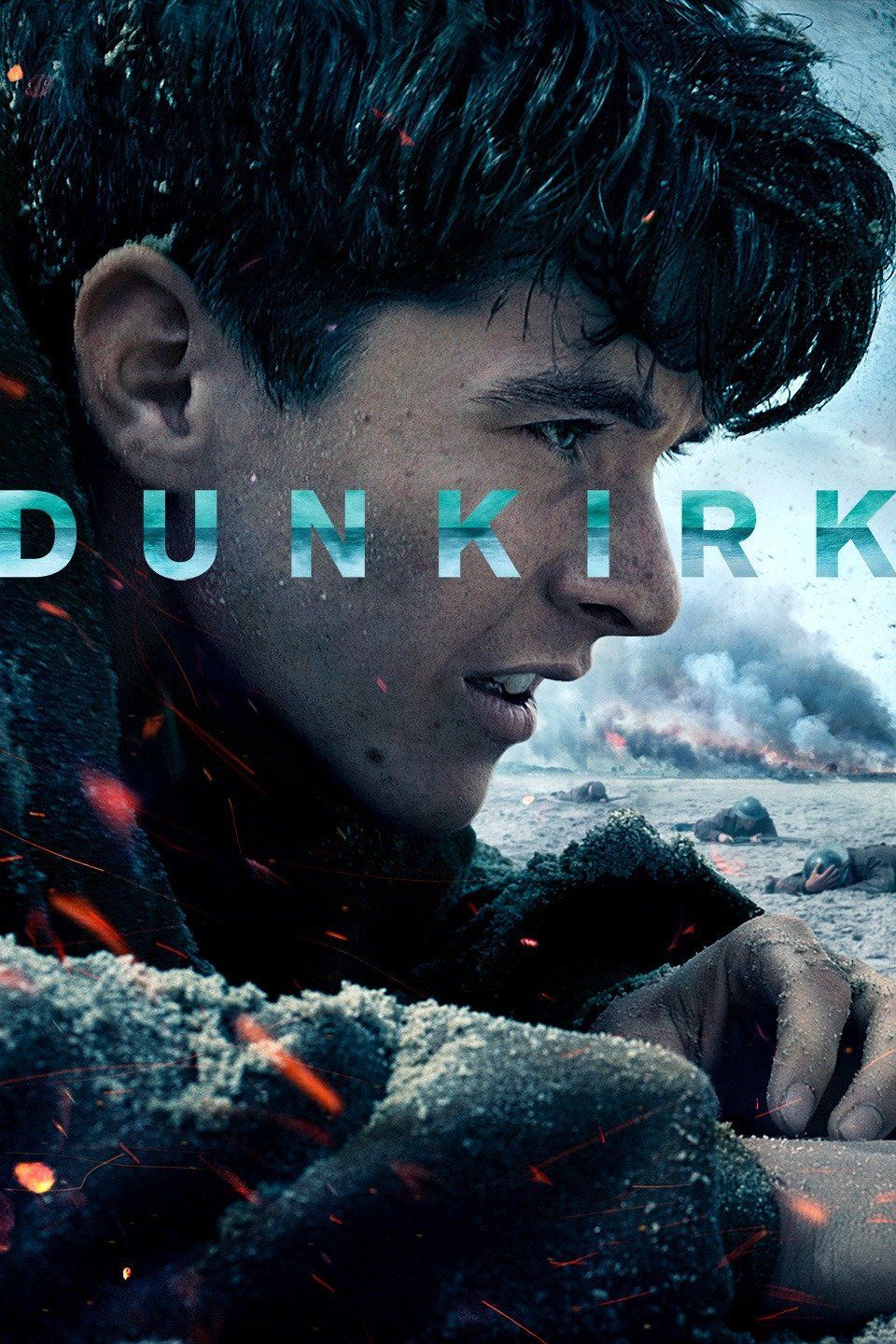 It's hard to describe the experience of watching this film. It's harrowing, tense, and shell-shocking. Christopher Nolan has put the audience on the beaches of Dunkirk, on the fishing boats, and into the spitfires during the greatest evacuation of World War II. Only the most talented directors can sustain tension. An audience cannot be stressed for two hours unless the story being told is engrossing. It must capture the audience. Dunkirk needs almost no exposition - it is told by a single piece of paper. From there, the film explodes. Then, the tension and suspense begin and do not leave you until the film ends.Dunkirk
It's hard to describe the experience of watching this film. It's harrowing, tense, and shell-shocking. Christopher Nolan has put the audience on the beaches of Dunkirk, on the fishing boats, and into the spitfires during the greatest evacuation of World War II. Only the most talented directors can sustain tension. An audience cannot be stressed for two hours unless the story being told is engrossing. It must capture the audience. Dunkirk needs almost no exposition - it is told by a single piece of paper. From there, the film explodes. Then, the tension and suspense begin and do not leave you until the film ends.Dunkirk - Mission: Impossible - Fallout
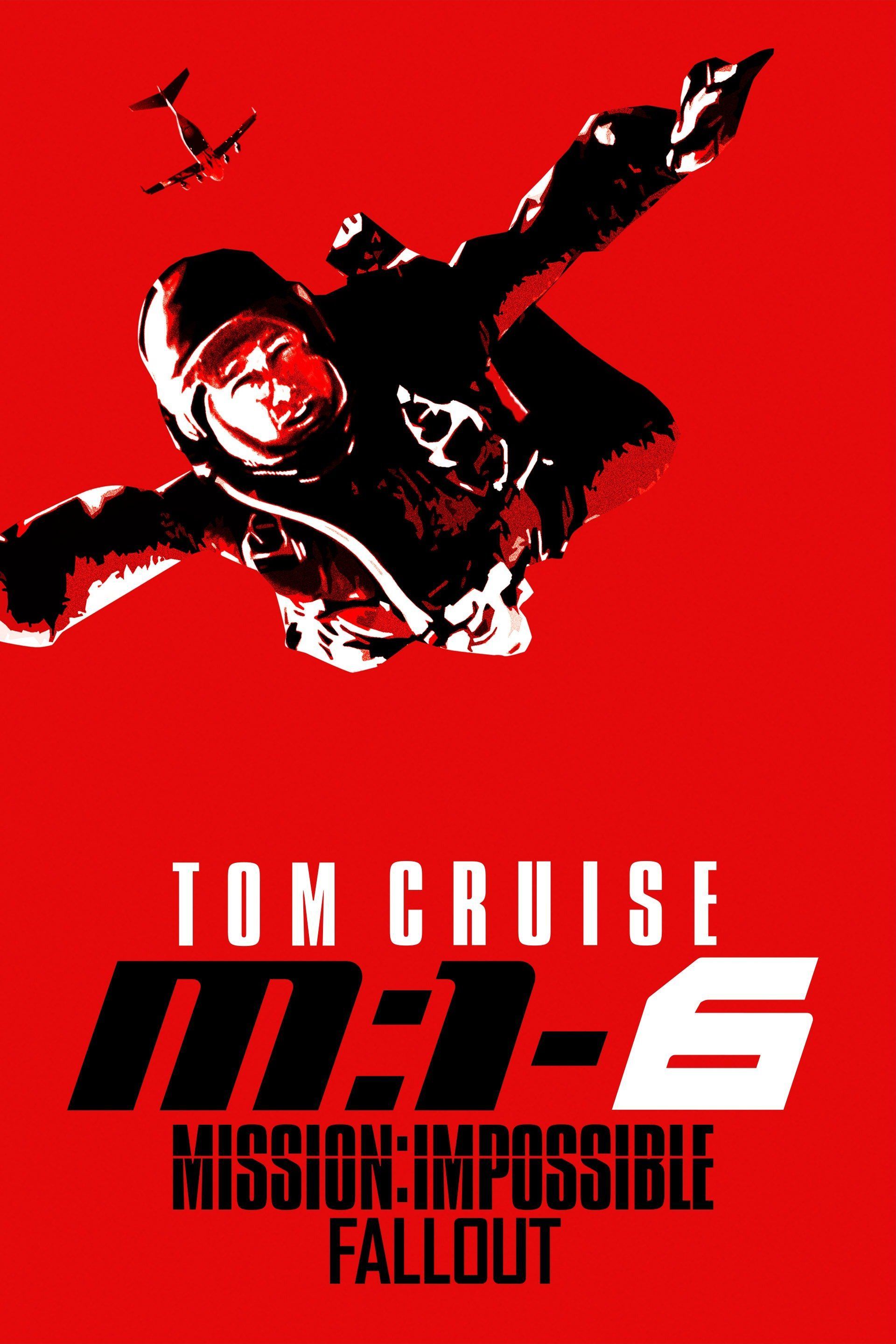 The only duo in the world who could make a film this layered in character as well as setpieces are Tom Cruise and Christopher McQuarrie. Each film since 2011's Ghost Protocol demonstrates a greater mastery of the action genre, while staying true to Mission by expanding upon the established themes of the series. From all I have seen in modern action movies, Fallout has no competition. It is the greatest action film I have ever seen. As always, masters are never satisfied. They always believe they can do better. The upcoming Mission films will teach us how great action, high stakes, and character can be composed into great cinematic experiences. Fallout seems like just the beginning.Mission: Impossible - Fallout
The only duo in the world who could make a film this layered in character as well as setpieces are Tom Cruise and Christopher McQuarrie. Each film since 2011's Ghost Protocol demonstrates a greater mastery of the action genre, while staying true to Mission by expanding upon the established themes of the series. From all I have seen in modern action movies, Fallout has no competition. It is the greatest action film I have ever seen. As always, masters are never satisfied. They always believe they can do better. The upcoming Mission films will teach us how great action, high stakes, and character can be composed into great cinematic experiences. Fallout seems like just the beginning.Mission: Impossible - Fallout - Born on the Fourth of July
 It is quite sad that Cruise was in a Best Actor category with Morgan Freeman, Daniel Day Lewis, Kenneth Branagh, and Robin Williams. Any other year, it would have been his. But, the trophy, I think, doesn’t matter, just as a medal would not have made a difference to the man he plays, Ron Kovic. It was a legendary performance in 1989 and it is a legendary performance 30 years later in 2019.Born on the Fourth of July
It is quite sad that Cruise was in a Best Actor category with Morgan Freeman, Daniel Day Lewis, Kenneth Branagh, and Robin Williams. Any other year, it would have been his. But, the trophy, I think, doesn’t matter, just as a medal would not have made a difference to the man he plays, Ron Kovic. It was a legendary performance in 1989 and it is a legendary performance 30 years later in 2019.Born on the Fourth of July - Ford v Ferrari
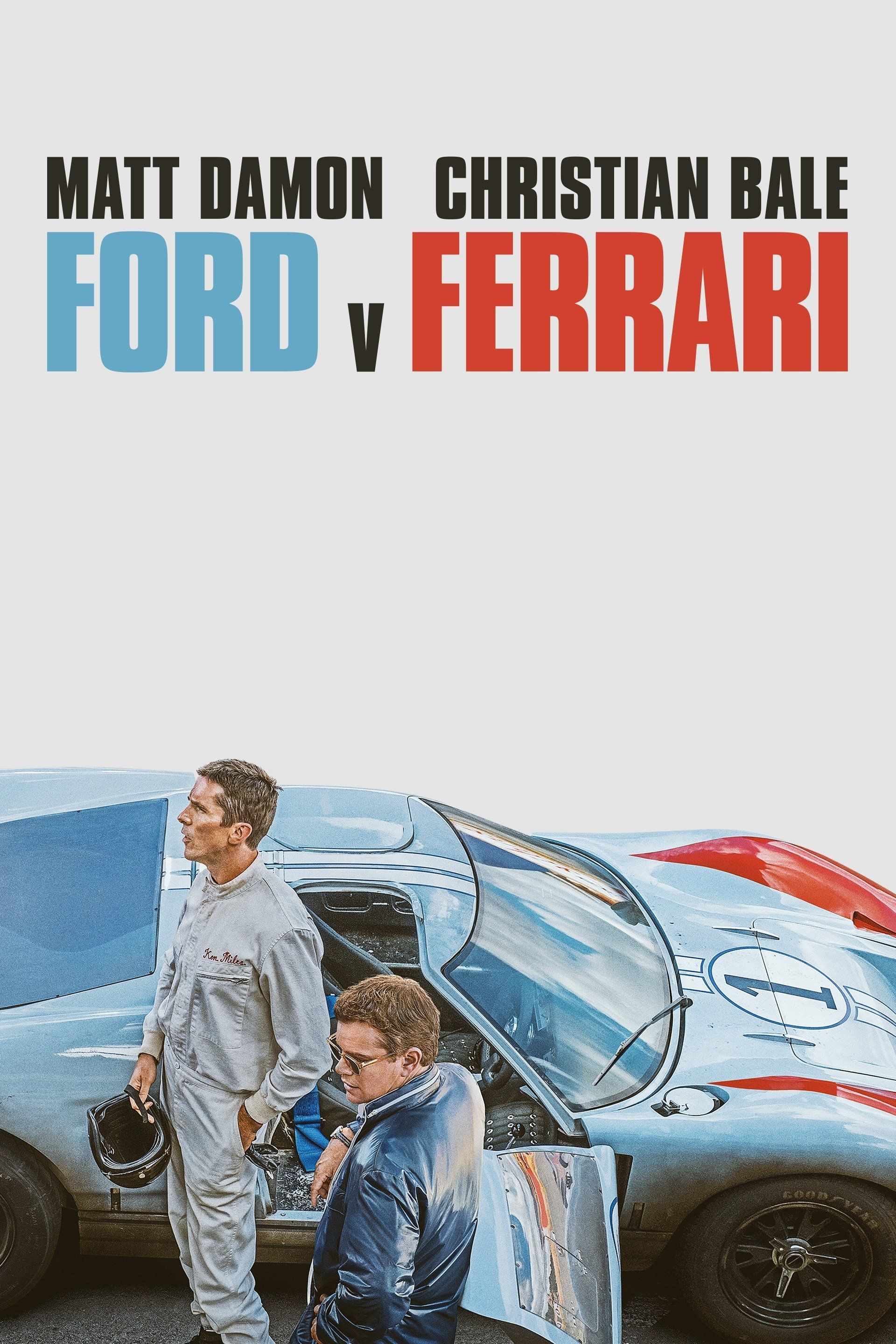 Vroooooom. Vroooom. The sound of a gas guzzling V8 engine has never sounded so good than in James Mangold’s new buddy film Ford v. Ferrari. This isn’t the type of racing that audiences are used to from the Fast and the Furious series. Crashes are shocking, time is always ticking, and winning is everything. Mangold focuses on the nitty-gritty, real-world meticulousness that it takes to win the most prestigious races in the world. When you finish the movie and get some distance from it, the sound of an engine stays - not just because it thrills and excite, but because it means something more. For the two men we follow in the film, Miles and Shelby, the sound of an engine was a calling, a sound that carried the weight of their existence. They did great things for the world of cars because they felt compelled to. Nothing meant more than following their path. Ford v. Ferrari poses the question to all of us: “What will you do?”Ford v Ferrari
Vroooooom. Vroooom. The sound of a gas guzzling V8 engine has never sounded so good than in James Mangold’s new buddy film Ford v. Ferrari. This isn’t the type of racing that audiences are used to from the Fast and the Furious series. Crashes are shocking, time is always ticking, and winning is everything. Mangold focuses on the nitty-gritty, real-world meticulousness that it takes to win the most prestigious races in the world. When you finish the movie and get some distance from it, the sound of an engine stays - not just because it thrills and excite, but because it means something more. For the two men we follow in the film, Miles and Shelby, the sound of an engine was a calling, a sound that carried the weight of their existence. They did great things for the world of cars because they felt compelled to. Nothing meant more than following their path. Ford v. Ferrari poses the question to all of us: “What will you do?”Ford v Ferrari - Brokeback Mountain
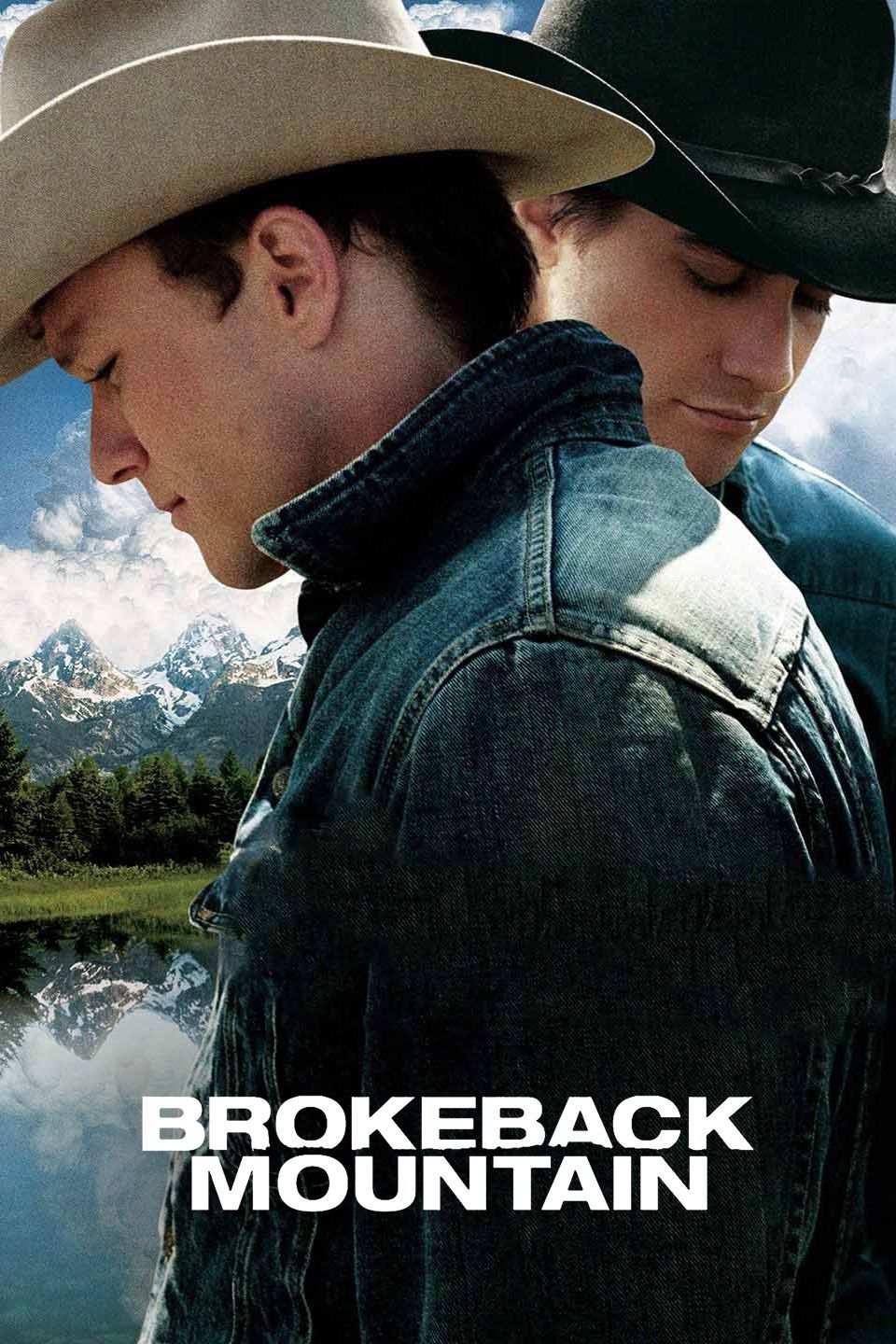 Brokeback Mountain’s emotional thrust is derived from depicting characters as they exist – with no interpretive strings from the film attached. As Harper Lee's beloved character, Atticus Finch, says in her novel, To Kill a Mockingbird, "You never really understand a person until you consider things from his point of view … until you climb in his skin and walk around in it." Brokeback Mountain transports mainstream audiences into a familiar world with familiar faces, but through an unfamiliar perspective that enables them to experience life from another point of view. In the process, the performances of an ensemble cast, a tragic story, and subtle directorial vision culminate to produce a film with the ability to shift attitudes on how gay people are thought about and treated, simply because the audience wills it so. The powerful question that naturally arises from the film is “Isn’t their expression of love equal to mine?”Brokeback Mountain
Brokeback Mountain’s emotional thrust is derived from depicting characters as they exist – with no interpretive strings from the film attached. As Harper Lee's beloved character, Atticus Finch, says in her novel, To Kill a Mockingbird, "You never really understand a person until you consider things from his point of view … until you climb in his skin and walk around in it." Brokeback Mountain transports mainstream audiences into a familiar world with familiar faces, but through an unfamiliar perspective that enables them to experience life from another point of view. In the process, the performances of an ensemble cast, a tragic story, and subtle directorial vision culminate to produce a film with the ability to shift attitudes on how gay people are thought about and treated, simply because the audience wills it so. The powerful question that naturally arises from the film is “Isn’t their expression of love equal to mine?”Brokeback Mountain - Spider-Man: Across the Spider-Verse
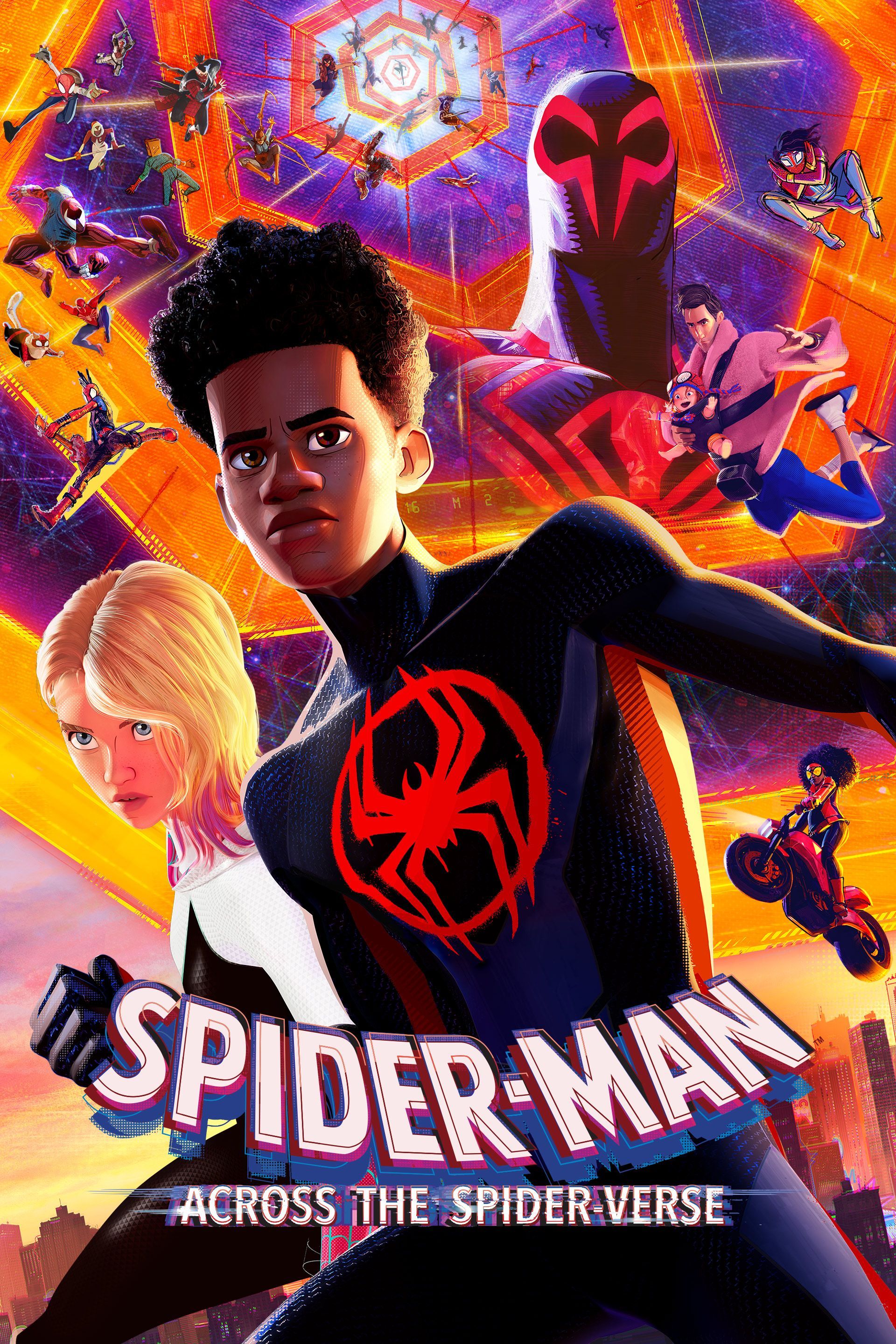 Spider-Man: Across the Spiderverse is the ultimate kids movie. This film does not spoon-feed the details; to catch them, it encourages participating in the movie by meeting the audience half-way through its animation, which deserves to be picked apart frame-by-frame. Many times, you have to dig through each shot and assemble the pieces to learn what a character is thinking and how they are feeling - in ways that live-action films cannot replicate. With one of the most original movie scores since 2022’s The Batman, full character themes that act upon each other, and a sonic intensity that captures the moment, composer Daniel Pemberton has crafted the best score in recent memory. Every voice actor brings their A-game. Best-in-class animation, voice acting, and writing help bring the audience into a world with such clarity that we must surrender ourselves to the picture. This film is a great cultural service because it is teaching our future moviegoers how to watch movies.Spider-Man: Across the Spider-Verse
Spider-Man: Across the Spiderverse is the ultimate kids movie. This film does not spoon-feed the details; to catch them, it encourages participating in the movie by meeting the audience half-way through its animation, which deserves to be picked apart frame-by-frame. Many times, you have to dig through each shot and assemble the pieces to learn what a character is thinking and how they are feeling - in ways that live-action films cannot replicate. With one of the most original movie scores since 2022’s The Batman, full character themes that act upon each other, and a sonic intensity that captures the moment, composer Daniel Pemberton has crafted the best score in recent memory. Every voice actor brings their A-game. Best-in-class animation, voice acting, and writing help bring the audience into a world with such clarity that we must surrender ourselves to the picture. This film is a great cultural service because it is teaching our future moviegoers how to watch movies.Spider-Man: Across the Spider-Verse - The Verdict
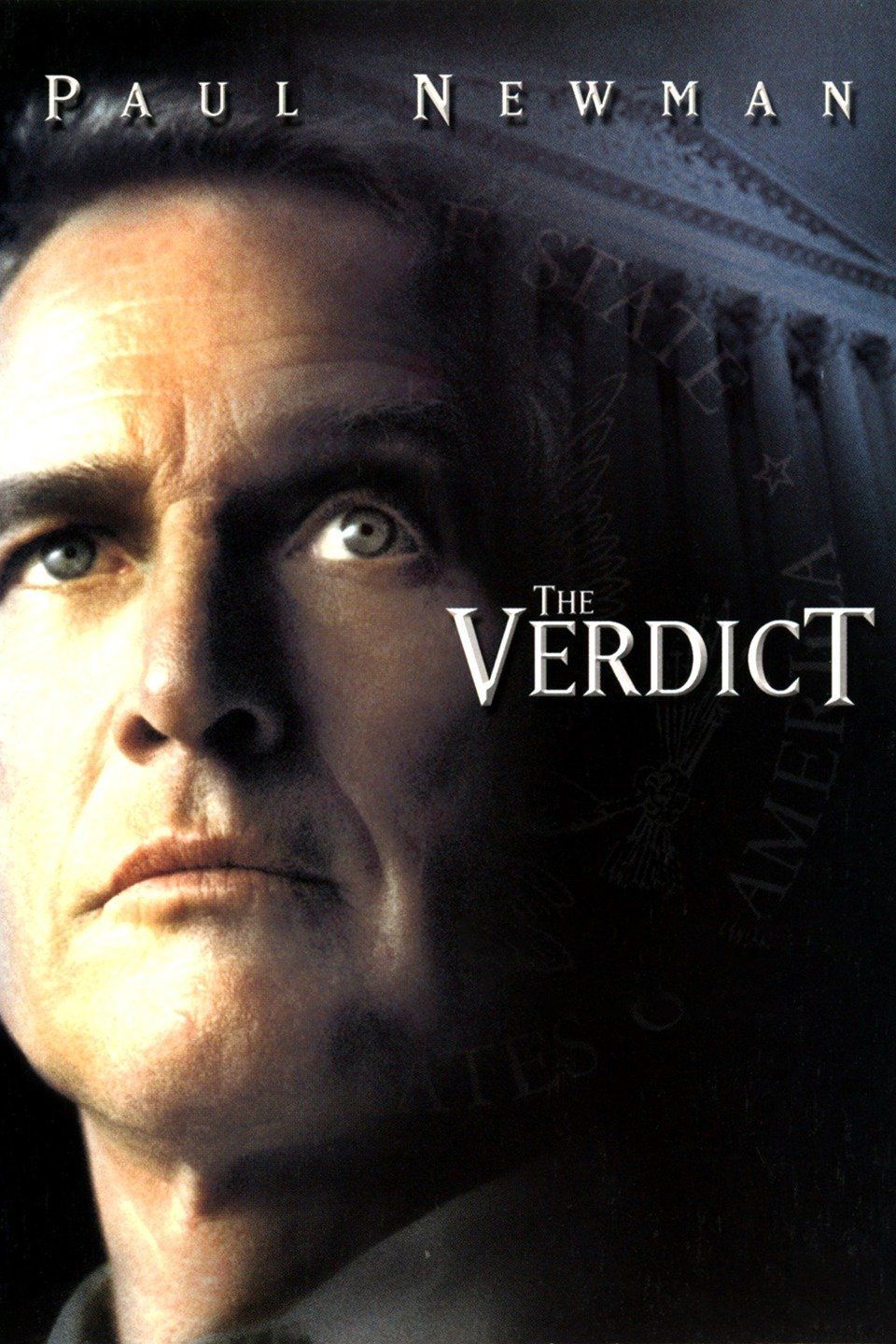 The Verdict feels like a sports movie. How could I compare a courtroom drama to a movie where the characters play football? On first impression, The Verdict bears no resemblance to a typical Hollywood movie about sports, but the similarities practically write themselves: a broken, main character, who was once brimming with potential, needs a comeback. Everyone who knows anything about him underestimates him. In fact, he is 0-4 in his last 4 court cases! Yet, he has the courage to take on the odds and the powers that be. He suffers betrayal, a rigged system, and just when all hope feels lost, a big, 4th quarter speech motivates justice to win out. Structurally speaking, The Verdict plays like 1976's Rocky, 2000's Remember The Titans, or 2006's Invincible, but with sharper dialogue, a tighter story, and Paul Newman as the lead. Though this time, the game being played is nothing less than balancing the scale of the American justice system. A weighty story, indeed.The Verdict
The Verdict feels like a sports movie. How could I compare a courtroom drama to a movie where the characters play football? On first impression, The Verdict bears no resemblance to a typical Hollywood movie about sports, but the similarities practically write themselves: a broken, main character, who was once brimming with potential, needs a comeback. Everyone who knows anything about him underestimates him. In fact, he is 0-4 in his last 4 court cases! Yet, he has the courage to take on the odds and the powers that be. He suffers betrayal, a rigged system, and just when all hope feels lost, a big, 4th quarter speech motivates justice to win out. Structurally speaking, The Verdict plays like 1976's Rocky, 2000's Remember The Titans, or 2006's Invincible, but with sharper dialogue, a tighter story, and Paul Newman as the lead. Though this time, the game being played is nothing less than balancing the scale of the American justice system. A weighty story, indeed.The Verdict - Mission: Impossible - Ghost Protocol
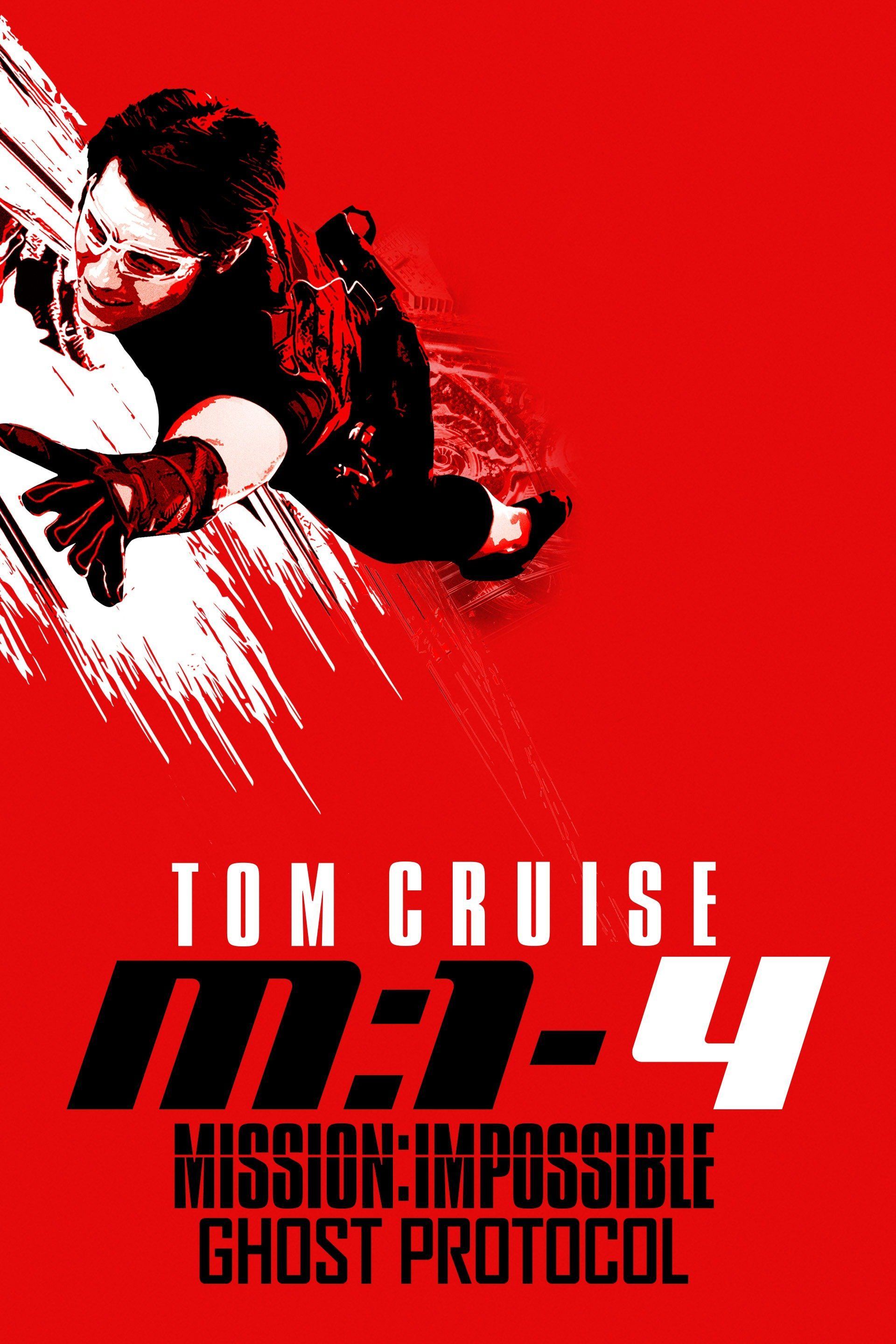 Looking back on the fourth iteration of Tom Cruise’s Mission: Impossible series, it features the bones of many big-budget, modern action films: a fast-paced, twisting-and-turning plot, a steady dose of humor, and multiple leading stars. This formula is so replicable that many other films copy and paste it to varying degrees of success. What is the difference between Mission: Impossible - Ghost Protocol and the rest? I would argue it is a solid script, the concise vision of director Brad Bird, and, of course, Tom Cruise.Mission: Impossible - Ghost Protocol
Looking back on the fourth iteration of Tom Cruise’s Mission: Impossible series, it features the bones of many big-budget, modern action films: a fast-paced, twisting-and-turning plot, a steady dose of humor, and multiple leading stars. This formula is so replicable that many other films copy and paste it to varying degrees of success. What is the difference between Mission: Impossible - Ghost Protocol and the rest? I would argue it is a solid script, the concise vision of director Brad Bird, and, of course, Tom Cruise.Mission: Impossible - Ghost Protocol - Thelma & Louise
 Who knows how these women became friends? As soon as they joined onscreen, I did not want it to stop. The chemistry between Susan Sarandon and Geena Davis is wonderful. Their characters’ buddy-buddy dynamic is only aided by their contrasts. Louise is the more experienced, senior buddy and Thelma is the immature lady acting on spur-of-the-moment opportunities. As they begin their journey, it becomes evident how much the authenticity of the story is served by the driving locations, motels, gas stations, and acting extras. I am glad this movie was given the budget to spread its wings with packed highways, beautiful scenery shots, and some seriously awesome pyrotechnics. Oddly enough, when the background is well taken care of, character comes into greater focus. Making it fun, their roles in the relationship do not remain static.Thelma & Louise
Who knows how these women became friends? As soon as they joined onscreen, I did not want it to stop. The chemistry between Susan Sarandon and Geena Davis is wonderful. Their characters’ buddy-buddy dynamic is only aided by their contrasts. Louise is the more experienced, senior buddy and Thelma is the immature lady acting on spur-of-the-moment opportunities. As they begin their journey, it becomes evident how much the authenticity of the story is served by the driving locations, motels, gas stations, and acting extras. I am glad this movie was given the budget to spread its wings with packed highways, beautiful scenery shots, and some seriously awesome pyrotechnics. Oddly enough, when the background is well taken care of, character comes into greater focus. Making it fun, their roles in the relationship do not remain static.Thelma & Louise - Past Lives
 Past Lives is a film that leaves you in a melancholy state of reflection. These characters share a sense of trauma that only time can fade away. Beyond asking myself, what would I do if I were in any of these characters’ situation, the film is bound to bring up old stories and events long past. Why is it that we ended up where we are? The scientific answer is mere probability and coincidence, but that has never satisfied a soul. Our universal sense of destiny is the most human element in all of us. Celine Song tugs at our human chords and asks those questions that make us wonder: "Is this where I was meant to be?" Her answer: "Yes."Past Lives
Past Lives is a film that leaves you in a melancholy state of reflection. These characters share a sense of trauma that only time can fade away. Beyond asking myself, what would I do if I were in any of these characters’ situation, the film is bound to bring up old stories and events long past. Why is it that we ended up where we are? The scientific answer is mere probability and coincidence, but that has never satisfied a soul. Our universal sense of destiny is the most human element in all of us. Celine Song tugs at our human chords and asks those questions that make us wonder: "Is this where I was meant to be?" Her answer: "Yes."Past Lives - Indiana Jones and the Dial of Destiny
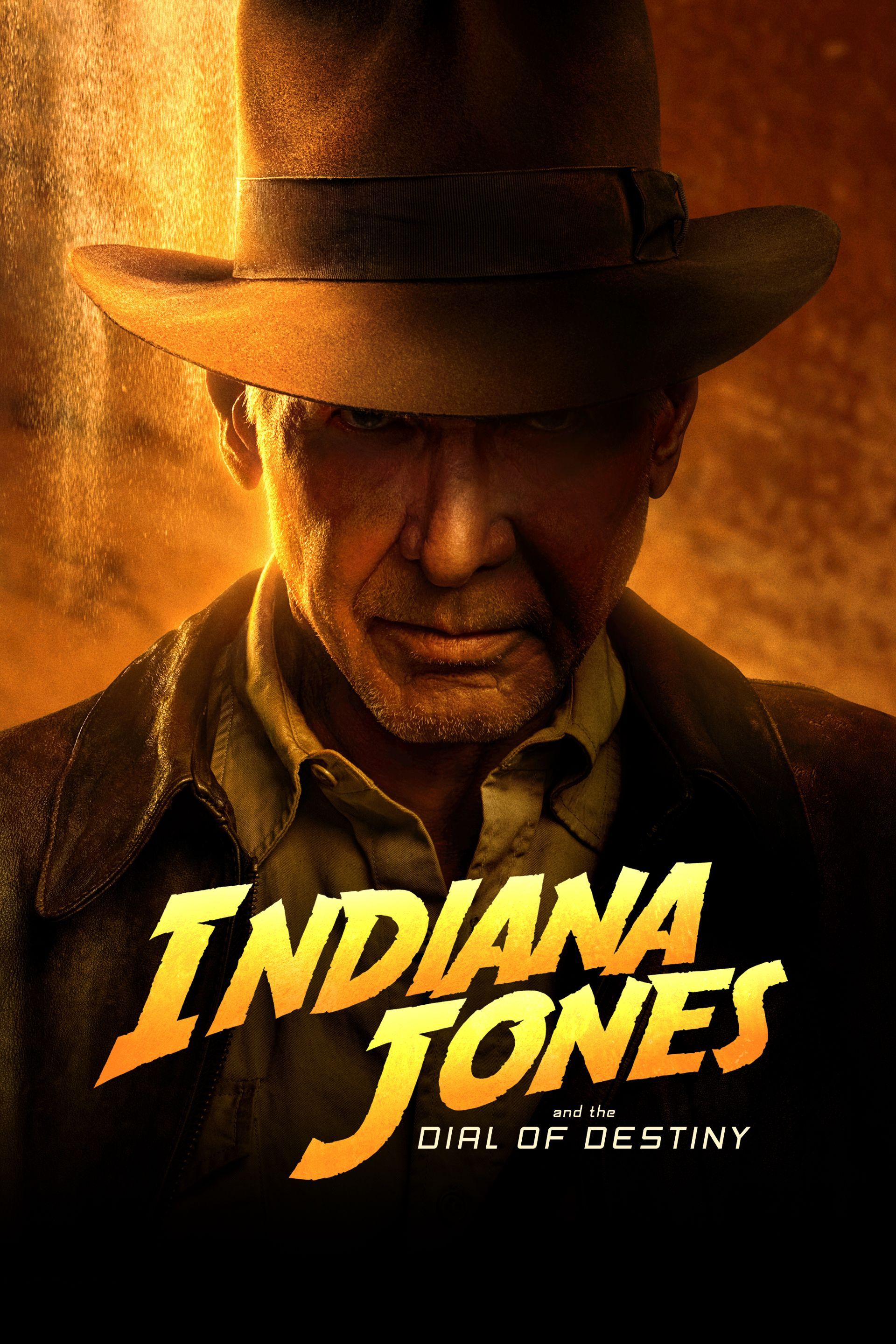 As a fan, maybe I expected too much from what should be a comical, breakneck-paced movie. But each film has a point beyond the adventure. Raiders has the romance. Temple of Doom has another romance set in the past and a heroic mission to save a village. The Last Crusade has Indiana reconnecting with his father. Indiana Jones films have a heart behind the thrills. Dial of Destiny has a washed-up Indiana carried on an adventure while he battles the regret of past mistakes. There certainly is a heart, but not the story that is worthy of a telling.Indiana Jones and the Dial of Destiny
As a fan, maybe I expected too much from what should be a comical, breakneck-paced movie. But each film has a point beyond the adventure. Raiders has the romance. Temple of Doom has another romance set in the past and a heroic mission to save a village. The Last Crusade has Indiana reconnecting with his father. Indiana Jones films have a heart behind the thrills. Dial of Destiny has a washed-up Indiana carried on an adventure while he battles the regret of past mistakes. There certainly is a heart, but not the story that is worthy of a telling.Indiana Jones and the Dial of Destiny - Mission: Impossible - Dead Reckoning
 Dead Reckoning Part One is not a match for the full package of Fallout, but the experience of watching it is better in some respects. The narrative seamlessly jumps from conversation to action and from one city to another. It is a style of action filmmaking that only Cruise and McQuarrie can manage. Their pursuit of perfection rages on, but the breadth of the story minimizes this film’s impact. Dead Reckoning Part One has its share of great set pieces, an intriguing and timely premise, and welcome comedy, but there are so many characters that the central cast sees a digression - a descent back to well-trodden territory. A repackaging of old parts, one might say. The pieces of a great Mission film are all here, but it lacks internal consistency. Dead Reckoning Part One is an uneven time at the movies. After the credits rolled, I said, “This was better than Fallout!” As soon as the words were uttered, something felt wrong. When the adrenaline subsided, the experience felt hollow: a rollercoaster experience that looks brand new but feels off. Dead Reckoning Part Two might retroactively patch some holes, but as a standalone title, the first part crumbles upon closer examination.Mission: Impossible - Dead Reckoning
Dead Reckoning Part One is not a match for the full package of Fallout, but the experience of watching it is better in some respects. The narrative seamlessly jumps from conversation to action and from one city to another. It is a style of action filmmaking that only Cruise and McQuarrie can manage. Their pursuit of perfection rages on, but the breadth of the story minimizes this film’s impact. Dead Reckoning Part One has its share of great set pieces, an intriguing and timely premise, and welcome comedy, but there are so many characters that the central cast sees a digression - a descent back to well-trodden territory. A repackaging of old parts, one might say. The pieces of a great Mission film are all here, but it lacks internal consistency. Dead Reckoning Part One is an uneven time at the movies. After the credits rolled, I said, “This was better than Fallout!” As soon as the words were uttered, something felt wrong. When the adrenaline subsided, the experience felt hollow: a rollercoaster experience that looks brand new but feels off. Dead Reckoning Part Two might retroactively patch some holes, but as a standalone title, the first part crumbles upon closer examination.Mission: Impossible - Dead Reckoning

